#i will write up a thing on culture/religion eventually
Note
Do you consider your version of Stewjon space Scotland?.
thank you for asking and not at all!

i don't have a direct comparison for my interpretation, but i'd say it's much more similar to a fantasy realm than anywhere else
#stewjon lore tag#records.#i will write up a thing on culture/religion eventually#all i know is they don't few force sensitives as bad omens#they would probably use it as a bragging right#'my kid has the force' bumper sticker#'u wanna marry my son he is slightly force sensitive'#things like that
2 notes
·
View notes
Photo



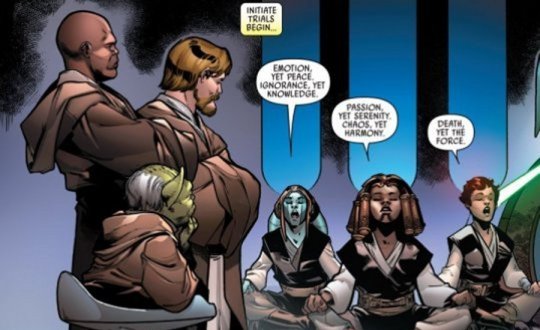



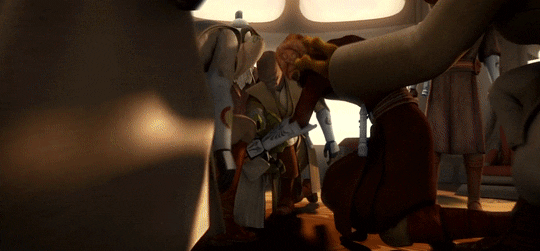
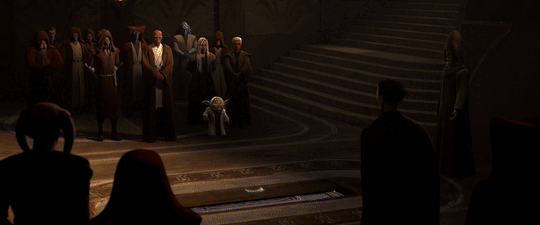

TAKING A CLOSER LOOK AT THE JEDI ORDER IN STAR WARS CANON, PART III
[A Meta/Reference Guide on AO3]
aka, SO WHAT DO THE JEDI SAY AND DO IN THE ACTUAL CANON?
This is the third part in my series of Jedi Culture and Teachings in Canon, which means I am now up to 75,000 words of citations and quotations about the Jedi from the source material. Honestly, the worst part is that I’m still terrifically behind and am already working on banging out another one of these that will be just as long!
This project continues to be really fun and rewarding, that being able to see everything lined up here contributes to this sense of who the Jedi are and what they’re like on a thematic level, as well as a useful guide when I want to reference a moment from canon in a meta post, and I’m hoping that it will be useful for those who want to use it for fic writing!
As always, it covers the Jedi’s relationship with teaching as their central philosophy, what Jedi learn at various stages of their lives, the way they interact with the Force, the way they interact with the rest of the galaxy, and everything that makes them a culture and people just as much as a religion.
The guide is broken down into seven sections as before:
How the Force Works
Jedi Culture & Philosophy & Teachings
Jedi As a People
Psychic Space Wizards Doing Psychic Space Wizard Things
Jedi Temple (Living Quarters and Dining Halls!)
Jedi Outreach and the Bigger Galaxy
Jedi, Buddhism, and Everything Else
Hopefully, you’ll find this useful or at least interesting to peruse, that you’ll find it laid out in an intuitive manner, and that eventually you’ll join me when this baby hits 100k words, because I’m pretty sure I’m gonna get there sooner rather than later!
#obi wan kenobi#anakin skywalker#yoda#count dooku#mace windu#jedi order#the high republic#meta#reference
1K notes
·
View notes
Text
Writing this on my phone at work so a lil jumbled but one of the things that really does make Macdennis one of the greatest will-they-won't-theys in tv history and why it doesn't annoy me they haven't gotten together yet even this far in when I would usually be pulling out my hair in other cases much earlier on is that it doesn't fall into a lot of the common pitfalls of the genre because in most shows, you *know* the characters are going to be together from the start and they don't actually have a solid reason why it can't happen sooner, other than they need to drag it out for the show, so rather than use the tools they have and naturally play off the existing tension between characters, they almost always feel the need to throw in arbitrary, extraneous, and often frustrating external obstacles instead, like a series of random cardboard cutout boyfriends/girlfriends/wrong place/wrong times that last entire arcs over and over again for the *sole purpose* of keeping them apart and being like not yet tee hee, to the point where you're just like okay, okay, get on with it, already, but with Sunny, almost every obstacle is *internal* (or based on already built in external factors that affect them internally and haven't just been fabricated on the spot to create problems in the relationship): Mac's struggles with his sexuality and religion, both their parents' intense homophobia and neglect, Dennis' past experience of being sexually assaulted, and his fear of being perceived as anything less than perfect in a society he's learned he has to hide from/always be stealthy in, lest you be taken advantage of or hurt, in general that societal expectation, you will get married to a woman (Maureen), start a family, live a "normal" nuclear life, that's how the story goes, etc. etc. not to mention the culture of the time the show itself first aired, network tv of 2005, they didn't start with this endgame in mind, practically unheard of that they would ever get together in any official capacity even if they did, so they were able to grow separately from each other before starting to grow together, naturally inclined toward each other, yet just as naturally held back by themselves and the world that made them this way. But eventually... they outlived that world, and after being so used to standing still, now they're struggling to keep up, to find themselves, to find their place in an environment they no longer recognize, and to reconcile the fact that maybe they don't have to hide anymore, maybe they don't have to be miserable, to run away, it's okay it's okay, but it was not okay for so long, they need time. And I'll get into the parallels more another time because I'm obsessed with them, but in Waiting for Godot (and in turn Big Mo), there's the theme of "The whole world changes, only we can't," but Mac comes out, Dennis claims back his heart, Big Mo shows up, so maybe they can maybe they can, and that change is necessary before anything else can move forward. And god, do I have a lot more to say on *that* topic and theme of change, but I'm saving it for a full essay, god willing🤞
#iasip#text#it's always sunny in philadelphia#macdennis#anmmbposts#macden#was gonna toss this in the queue but i think ill scare myself out of posting so gonna post then run away and actually do my work#oh wow after i posted i realized i just gave y'all a wall of text lol my bad
170 notes
·
View notes
Note
Snow Elf culture?
*pulls up a chair*
Perhaps...
A wee disclaimer that I'm not particularly good or creative with developing cultures or societies, but my brain has just latched on to the snow elves in a way where I can't stop myself. But anyway

I developed a lot of this because of a big ass draft for a fic I've been writing on and off about Gelebor and Vyrthur, so a lot of my headcanons are religion heavy. I'll start there:
Gelebor seems to place Auri-El and the Chantry of Auri-El as having significant importance to the Snow Elves over the other gods/temples. He's probably got a bit of bias in that regard since he's devoted his life to Auri-El, but in order to differentiate their religion from the other elven ones I like to think that their religion in general worshipped Auri-El as not even just as the figure head of their pantheon, but almost monotheistical, while the other gods (Trinimac, Syrabane, Jephre and Phynaster according to Gelebor) were like minor divine figures or just legendary heroes even more than in Altmer myth, depending on the interpretation. My idea is that if their culture had been allowed to continue on, it would've eventually become monotheistic, but by the arrival of the Nords they were in a bit of an awkward transition period with it.
I also like to lean into the sun motif with Auri-El that they established in Dawnguard and with Auriel's Bow, partially because it's another thing to make their depiction of him more unique, and in part because it makes some very juicy irony for Vyrthur. Some ideas include:
- The more religious folk tend to pray at noon when the sun is at it's highest.
- The two biggest snow elf festivals happen on the summer and winter solstices. As far north as they are, the summer solstice is during a time of year where the sun barely sets and the winter one is during a time of year where it barely rises. The summer one is more jovial and celebratory, with a grand feast. With almost 24 hours of daylight, the festivities last up to three days straight, with folks commonly staying awake for over 24 hours. Most of it is spent outside, with the celebration being focused on making the most of the weather and daylight hours to spend as much time in the sun and the light of Auri-El as possible. The winter festival is as large scale but lasts longer and is lower-key. It also involves a feast but features more winter foods and meat and alcohol. It is more pensive. At this point in the year, there is no full daylight, and so this season is seen as a test of one’s faith and mental fortitude. This festival acts as a break from this trying time, taking time to relax, build community (a strong community will allow them to make it through the winter and strengthen their minds), and bond with family and friends. It is about a weeklong break, where leading up to the festival everyone works harder to prepare for it and allow themselves to have the break. There are activities and festivities, but they remain indoors for the most part and are smaller.
- I've referenced this before, but with long winters with little sunlight (due to harsh weather and short days), they see that time of year as a reflective test of will and faith.
Due to their proximity to dragons, it was hard to miss the connection between Auri-El (/Akatosh) and dragons, and so their depiction of Auri-El is either much more influenced by the iconography of dragons, or is a dragon (although their depiction of dragon Auri-El is much more benevolent than the Nord/Atmoran one). I got the idea for this one from this Reddit post (i know I dog on Reddit a lot but this one has got some fun stuff in it, even if it's a bit out there)
^On that note, later in the timeline (post Dragon War (the timeline is very fuzzy on when this and the Night of Tear happens. They are both sometime vaguely in the late Merethic Era I believe, but it's unclear which happens first or how long each conflict is)) some Snow Elves see a sort of unreturned, unofficial comradery with dragons, seeing themselves as both on the receiving end of the Nord's/Atmoran's brutality (disregarding whether it was warranted or not in the context of the Dragon War).
Ok here's some more general cultural ones:
I mentioned my reasoning for this in this post, but I like to think their general settlements were not as permanent, with a larger focus on wood and building into the sides of hills (good for warmth), while their temples tended to be made of stone and much more permanent. This is why there are so few identifiable Snow Elf ruins across Skyrim. Their cities and towns were easy to wipe out, scavenged for resources, or were in good places for Nordic cities (perhaps Bromjunaar was originally the site of a Snow Elf city?), and their temples were either very hidden (e.g. the Chantry of Auri-El) or eventually converted to Nordic temples.
I love this journal in general for gleaning ideas for Snow Elf headcanons for, but one interesting this is the use of "Old Ones" and "Young One". They're treated like established titles. From that I like to think they place a lot of emphasis on the respect of those older than you. The social hierarchy and whose opinions are most valued is heavily influenced by age. Folks call anyone older or more revered “Old Ones” as a term of respect, and anyone younger than them “Young Ones”. Old One is almost never used in a demeaning way, but Young One can be (not always). Typically, “Old Ones” is used in the third person (e.g. you wouldn’t refer to someone directly as “old one”) whole “Young One(s)” can be used as an epithet for someone directly or in third person.
When thinking about death/"burial" customs (needed for some scenes in the fic I'm planning), you have to consider that there probably wasn't a lot of land in a place like Skyrim where someone can be buried. Nords intern their dead in crypts or burn them to get around this, and I like to think Snow Elves participated in something akin to sky burials (at least sometimes). After preparation, the departed's body is left outside on a ledge, cliff, or the temple balcony to be scavenged by birds. This is seen as a metaphorical return to Aetherius, while their soul literally returns to it. They do this even in poor weather or deep winter. If it doesn’t thaw and rot/be scavenged until months later, so be it. The length it takes to rot is considered indicative of how long it takes for the spirit to let go and move on (not in a bad way though. It’s interpreted more in the way of the soul or body grieving). It's seen as if they may wish to wait until spring to finally rot if they want to experience one more warm, sunny day.
Food (I mostly wrote this in my notes in the context of the Forgotten Vale and Chantry of Auri-El, but I think it could work elsewhere as well to an extent): Plant-based food is grown in gardens in the spring and summer, and that that is able to be stored is carefully preserved through the fall and winter. Winter foods include some nuts, dried vegetables, and dried and preserved/fermented grains (like wheat, barely). These foods must be eaten slowly throughout the winter to last, and winter diets are more meat based. Summer foods include apples, cabbage/lettuce, leeks, tomatoes etc. Snowberries can be found in the wild out of season of most other fruits, and provide fruit in very early spring. Occasionally, fungus from caves is harvested, but this is seen as a delicacy (foreshadowing).
Ok, that's it for now. I gotta go to bed. Thanks for the ask!!!! :D
#charlie its always sunny in philadelphia voice 'can we talk about falmer please ive been dying to talk about falmer all day'#mine#ask#tes#skyrim#the elder scrolls#snow elf#snow elves#reading my notes doc while making this and i was really cooking on some things. didnt include them all becasue some are very specific for#that fic i keep referencing#like i had to try to elaborate on the religious hierarchies and duties of each position because that was obviously gonna be relevant#but its sorta half baked rn#also i want to have some more headcanons for later in case someone asks again :)
68 notes
·
View notes
Text
Malice, Malevolence, Maous.
Kegare, Shinto Buddhism and how it gets reflected in Japanese video game writing. (Fire Emblem and Zelda Botw/Totk centric)
Gonna blab on a very specific aspect of Japanese Shinto :D. This is not talked about often despite the sheer amount of stuff out there so here's me talking about it.
So. It often goes something like this. The Hero gets a powerful magical weapon at some point. They fight through the Big Bad's army of mooks while they may journey throughout the land. Eventually, they, or the weapon mcguffin gets powered up by a higher power, and at the climax, the Hero/es comes through to take down the evil big bad Demon King-esque malevolent monster/dragon/non-human out, thereby succeeding in saving the world.
Any of that sound familiar? It should, for anyone who has engaged with just about any Nintendo media from Mario to Fire Emblem to Breath of The Wild.
This big bad character archetype is also known as Maou, or the Demon King. 魔王 can also be translated into Sorcerer/Magic King, but the negative evilness associated with it is more apt. TvTropes even lists this as a trope (link)!
The why they are often times taken down this way though, kiiiind of lies within Shinto Buddhism. (And by extension many of other culture/religion's concept of 'ritual cleanliness', but for this post I'm ignoring them! Sorry!)

I'll switch gears a bit to culture/religious stuff and talk about Kegare under the cut.
I think everyone who has ever touched any Nintendo or Japanese related media has ran into the concept of 'kegare', or 'spiritual uncleanliness' multiple times without realizing it.
Kegare (穢れ or 汚れ) is the concept of 'spiritual dirtiness'.
Translated as 'pollution' or 'defilement', to be kegare'd is to be dirtied in some form, often times through action. Generally speaking, kegare is a negative energy typically generated upon contact with death, childbirth, disease and menstruation. But it can also come into state through particularly powerful, negative state of emotions such as hate, jealousy, guilt and anger as well. Note that Kegare isn't by itself a moral or judgemental concept, but rather a force of nature. Kegare is not sin, and therefore cannot be seen as such!
You can think of kegare as bad vibes, bad juju, or even miasma. They're very similar concepts.
With enough bad vibes (basically), a place, object, or a person can be polluted so hard that evil spirits might manifest and cause harm to both them and their surroundings. Hence why Japanese media loves depicting places with bad vibes like the hospitals to be full of yokais or ghosts looking to cause harm.
This is why characters who harbor ambitions of taking over the world are seen as Maous. It's why characters like Hegemon Husk!Edelgard, Grima, Ganon, Mr. Grizz all fit into this evil, ambitious, resentful, almost force-of-nature-like beings who brings with them death to the world. Because they aren't just bringing death with them, they're about to unleash the largest tsunami of bad vibes they can into the world too!
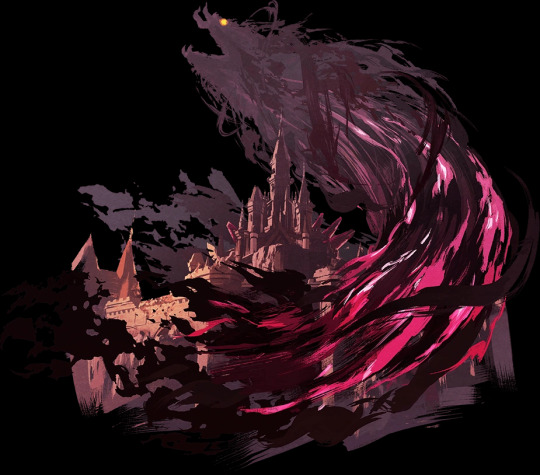
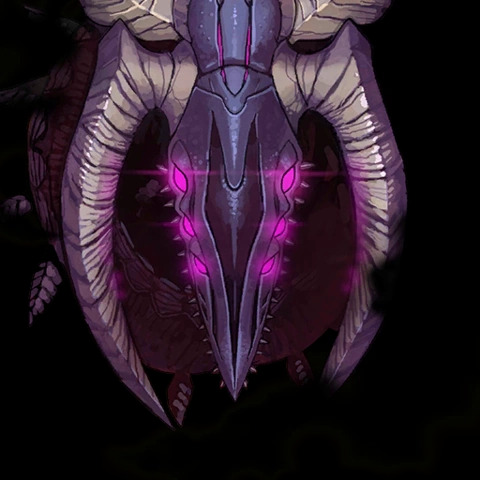

But, the state of kegare can be purified away. There are 2 main ways to do so. Misogi, and Harae.
Misogi (禊)
By standing under a waterfall or washing the body with water, kegare can purified. Notably though, one must be dressed in white during this ritual cleansing. This specific concept is known as Misogi, and you might have come across it in botw already:

In BoTW, Zelda attempts to purify herself in order to unlock the power of the Goddess. By visiting important spiritual places and washing herself in its water in white, she's performing Misogi.
In Fire Emblem Heroes, Naga will suggest this to Kiran, the Player Character:

But misogi isn't exactly why big bads get the holy weapon whacking treatment. If you have noticed, misogi affects only the willing individual taking part in ritual cleansing. The real reason is actually...
Harae (祓)
Harae can mean 2 things. To drive out, or, exorcise. Consenting or not, harae essentially drives out or purifies kegare in another person, place, or object through rituals.
Harae can involve ceremonies, song and dance, using a ritual cleansing tool(!) such as the onusha.
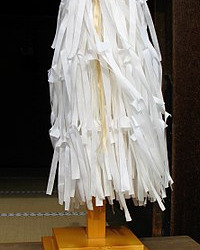
As an example of the former, Azura in Fire Emblem Fates essentially embodies the power of misogi through her association with waters and purification. Here, she tries to exorcise the evil inside of Garon. She is actually performing harae!
youtube
As an example of the latter, the cleansing tools.... Why, it should be sounding familiar now.
Be it the Falchion, Yato, Fire Emblem, Breidablik, The Creator Sword, the Master Sword, Ocarina of Time, The Twilight Bow, they all share 2 very similar traits:
Be powered up by the good juju power/light
Whack the big bad maou with it, sometimes unleashing light in the process
In this context that I'm presenting, they are all tools of purification/exorcism. Sit down and think about this. Think about all the Japanese JRPGs you've played so far and see how much this clicks.
The Hero gains a weapon/tool/relic, powers it up in some way or is inherently already powered, and then uses that to smack the big bad and win. Sometimes the tools can be the heroes themselves, but it is often the very similar song and dance (heh). Hell, you can even extend this beyond Fire Emblem and Zelda. Maybe even extend it to anime and manga, and you might find the same themes in places you don't expect.
It's kind of neat to think about. Essentially, the hero not just defeats the big bad, but kind of purifies them as well.
But! There's another reason why weapons are often the divine relics needed to deliver the finishing blow in video games, and why they are almost always associated with characters of authority.
The Imperial Regalia of Japan/ The Three Sacred Treasures

There exists 3 treasures which represents 3 primary virtues and are part of the enthronement ceremony in Japan. They have never been shown to the public to symbolize authority, so no one but the authority knows what they look like. The above image is just an artist's impression of what they might resemble. They exist, supposedly.
The Sword is known as Kusanagi no Tsurugi, the mirror as Yata no Kagami, and the jewel as Yasakani no Magatama. They represent Valour, Wisdom and Benevolence respectively. They are said to be brought into this world by Japanese gods, passed to the first emperor of Japan, Emperor Jimmu, who said to be a descendant of Amaterasu, the Sun Goddess.
Yep, this is also why Fire Emblem is always about noble blooded people with divine weapons.
Yep, these are also the original inspiration for the triforce in The Legend of Zelda.
I won't get into the details behind the Regalia's story in this post, it's too long! Linfamy has done a video about the Regalia if you're interested.
youtube
Hopefully this was interesting. Again, feel free to take the ideas here and read up on it externally. So many, many videos and posts and I've not seen people talk at all about this. Sadge.
But before I close off this post, there is a negative side to this kegare concept, in which real people are discriminated against in Japan. ...Remember the association with death for kegare? Yeah... Uhm, someone needs to take care of the dead in any society and butcher livestocks for food, so what happens to those people? ...Messed up things, actually. If you are interested to learn about this, feel free to check this video out (link). Warning: it's a huge downer of a video.
And I think I've spent enough time writing this! Ty for reading this far if you did! ❤️
#fire emblem#fire emblem heroes#legend of zelda#fire emblem engage#apologies if the tags over reach a bit#culture stuff
169 notes
·
View notes
Text
i’ve noticed that whenever we see Satine she’s always “modestly” dressed/covered - which is a total contrast to many costumes of other characters:

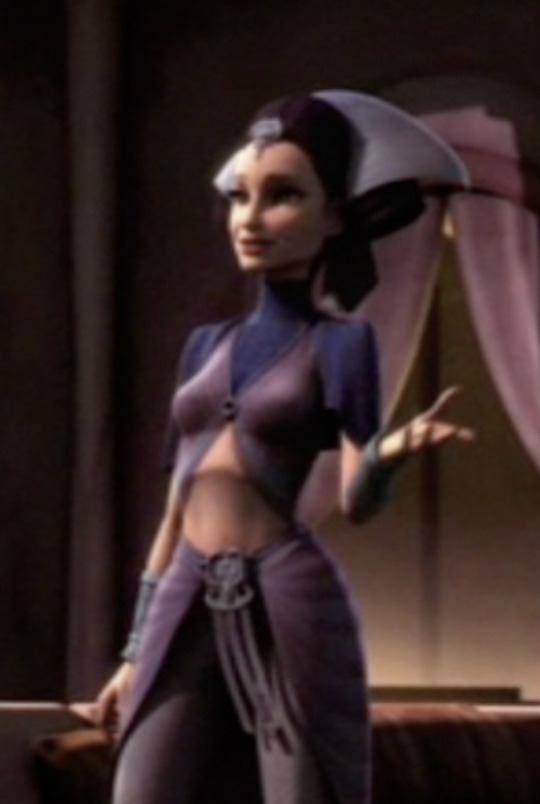

and i think it would be interesting to write this as some sort of Mandalorian religious thing - like how Din Djarin and the Children of the Watch don’t take off their helmets, and don’t seem to uncover any other parts of themselves either.
of course Din and his people are religiously orthodox/extremist, so Satine’s situation would obviously be different - more like covering your head before going to mass and less like wearing a nun’s habit.
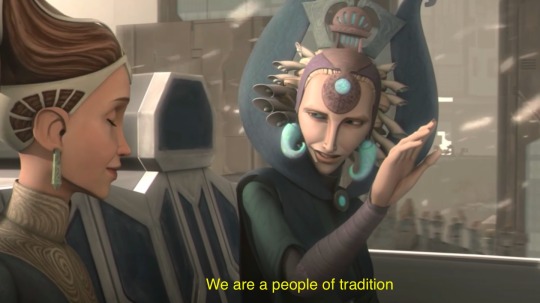
but it would still be really intriguing to paint Satine as religious, as following religious traditions - especially because she’s so devoted to Mandalore and it’s people. like…we’ve seen her wear low cut dresses and show her hands and her hair, but maybe as a sign of respect and modesty she keeps her arms and legs covered (we never see her arms and legs in any canon imagery)



and!! it would bring up an interesting layer to her dynamic with Obi Wan. Obi’s devoted to his religion and Satine is devoted to hers - but those religions have vast differences and few similarities.

you could play it like “their religious and cultural differences cause friction between them” or as “they’re aware of their differences and have a profound respect for each other” - and between the two, the latter seems much more plausible/in character.
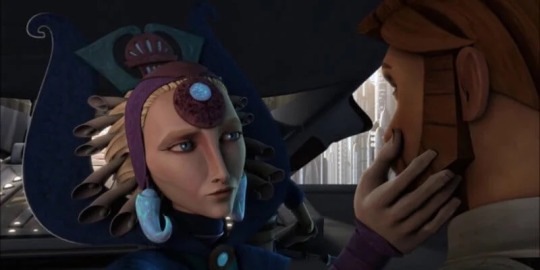
just imagine
Obi Wan, during their year on the run, shielding her with his cloak so she could change clothes without any of her limbs being seen. Obi Wan quickly covering the exposed skin on her arms when bad guys attack and their weapons have ripped her sleeves. Or!!! Satine hiding injuries from Obi because she doesn’t want to break her promise, doesn’t want to reject the traditions of her people - when Obi eventually finds out he turns his back/separates them with a curtain, and talks her though cleaning the wounds.
Satine never “said the word” because no matter how much she loved Obi Wan, she’d never expect him to break his oath or turn his back on the code. because she knows how important being a jedi is to him. because she knows and understands how important his devotions are. He never once asked her to compromise her beliefs for him - and she’s not going to ask him to compromise for her.
#somebody stop me#clothing in media is something that can be so personal#star wars#star wars meta#satine kryze#mandalore#the clone wars#obi wan kenobi#obi wan and satine#obitine#the mandalorian#din djarin#death watch#aayla secura#ahsoka tano#journaling is for nerds
851 notes
·
View notes
Note
JUSt needed to tell you that thinking about "Profile in Quicksilver" got me through the day 💕💕💕
I also love how you incorporate worldbuilding details seamlessly into the narrative without being overwhelming! I love reading Gale & Draxum talking! Do u have any religion/traditions/custom headcanons that didn't show up in the fic (yet)?
thank you so much for writing!!!
Thank you! I do try to avoid lore dumps, even if they can be interesting at times. Ideally, people won't realize they're being lore dumped on. It's like, in a dance when you transition to a different blocking, ideally the audience shouldn't even notice you're transitioning, it should just feel like part of the choreography.
And OH FUCKING BOY DO I. Thinking about the background of the Hidden City and the Yokai as a whole has been so much fun. Making it fit with the lore we see in the show and the actual history of New York City has been so much fun-like, it's not that there happens to be a giant monster city under NYC, NYC became NYC because there was a giant monster city already there. And that's why NYC is Like That. Why are all the dark armor pieces in New York? Because that's where most magic is now, magical beings were driven out from everywhere else.
As far as religion, I've been keeping them pretty secular? Mostly because that's just an aspect I don't feel really jives with TMNT. I have a scene later on where Leo and Mikey attend church with April and her parents, but it's more out of curiosity than any real desire to take up religion. They see it as more of a cool cultural thing that an actual system of beliefs. One of the main things I can remember right now is Leo bitching about the smell of incense.
In the background, I think of the Yokai as following a lot of pagan religions. These people haven't been directly colonized or conquered (or more accurately, were ethnically cleansed instead of being colonized or conquered) so Christianity and Islam are much less common. Probably the same with some other religions that spread due to conquest, but I'm not...entirely sure what those religions would be. (Hellenism? Zoroastrianism? Taoism? Do those fit? I'm singling out Abrahamic religions because those are the most common currently) Also Christianity and Islam are pretty young religions. I haven't made a definite timeline, but I'm leaning towards most Yokai communities being established more than 2000 years ago. Leo mentioned in the Christmas chapter that there were a lot of bright reds and lights down in the Hidden City-pretty much everyone has a winter solstice holiday, so officially they're celebrating the solstice instead of any one religious holiday, and everyone's kind of free to celebrate however they want. Not a lot goes down in December, actually. Schools have most of the month off, a lot of workplaces cut their hours or just straight shut up for a few weeks, most people are partying and spending time with family. It's basically like their summer vacation.
Oh! One thing I will probably work in at some point, but the last of the Yokai migrations happened during WW1. The few remaining exclaves in the human world (like the one in Chongqing, where Tigerclaw was living) basically went "fuck it" and packed up shop, even in places where there was no fighting. It was the nail that drove home that they couldn't exist alongside humans, that even if they weren't warring with the humans themselves they would still get roped into human conflicts, and eventually they would be killed off.
And the thing is, up until recently, the Hidden City was still rather closed off from the human world, despite living underneath NYC. You have to get government approval to go topside, so most people were living their entire lives underground without ever stepping foot in NYC proper. It was really with the invention of television and then the internet that bridged the gap from the Yokai's side, and both those things took a lot longer for the Yokai to adopt. So a lot of human stuff that happened from the 1910s to around 1970s-1980s era didn't get a lot of attention down there.
Like. They know WWII happened. Objectively. By that I mean they knew shit was going down, so the Heads pulled down just about everyone who worked up top and they all just bunkered down for several years until they realized the war was over. It was an annoyance for most of them, a period of time where they couldn't get certain products or had their business disrupted because somewhere in their chain was a guy who worked at a human company and he can't do that now. They were able to read about what happened afterwards and knew vaguely of all the genocides, but most of them didn't look into it very hard. Just more humans bent on killing each other, what else was new? Most of them will still refer to WW1 as 'The Great War.'
And I thought of this scene before October, and I feel like I probably shouldn't use it now due to how politically charged it is, but originally I wanted to include a scene where someone mentions Israel and Josh is really confused because the last time he was living aboveground that area was controlled by the Ottomans and was officially part of Syria. Maybe independent Jerusalem, but why would it be Israel? Bella has to pull him aside and explain. He knew about the Holocaust, but he had no knowledge of Mandatory Palestine or the Nakba. The entire time she's talking and his eyes are just bugging out.
On the plus side, India is no longer under British rule, so he was probably pretty happy to find that out?
I had like several other things I rambled about and deleted because they were going entirely off the rails, I might post those at another time. I've thought about this world way too much and I've written far too little down. (also sorry it took so long to respond! I knew I'd go crazy and wanted to get the chapter done first, and the chapter took longer than I expected lol)
#doth asks#i both love and hate info-dumping worldbuilding stuff like i feel like i'm just total stream of consciousness sometimes
23 notes
·
View notes
Note
Your post about your upcoming Bad Buddy meta got me thinking about Bad Buddy (again), and I remembered one particular thing that had an impact. Apologies if this is long and rather incoherent, I wrote this past midnight.
In the final episode, the part where we see Ming and Dissaya turn a blind eye to Pat Pran's shenanigans really struck a chord with me.
[I'm an Indian, born and raised, and queer, but it's well worth mentioning that my experiences are not universal- in fact, they may be the exception rather than the rule; I'm not quite sure.]
What it reminded me of was, that asian parents tend to come around eventually- in particular mothers. We've seen time and time again in series' that deal with difficult/not accepting family members; Bad Buddy, GAP, Wedding Plan, maybe even Double Savage (haven't watched this one but I believe the dad feels bad in the end?), that even if the parental figure(s) doesn't agree with their children's choices, they learn to compromise. Because the difference in opinions isn't worth losing their children over. Obviously, for every parental figure that comes around there's one that the children cut ties with (Wedding Plan remains a good example), but I think it's something worth seeing.
It made me think of how I was never scared of coming out to my mother, because I knew that, despite the difference in views, and her prejudice, she'd accept me, no matter whether she thought it was a phase or not.
Do I know what the point of this ask is? Not really, I was rather nervous sending this ask, especially not on anon, but I'd love to know what you think of this, since I've come to really enjoy reading the thoughts you have on these shows.
Ohhhh, wow. @starryalpacasstuff, come 'ere for a big mom hug! HUGE HUGS!
I'm gonna unwind a little randomly; I hope this is coherent. A ton of what I write about on my blog vis à vis Asian dramas are the unique characteristics of Asian families and an Asian upbringing. Parental conditional love, competitiveness, our unique experiences with intergenerational trauma. I write a lot about how Asians, in our cultural expectations of life, accept pain and suffering as an assumed part of our existences. The reason why I watch Asian dramas exclusively is that, as I'm Asian-American, I just connect far more easily to the Asian cultural experience of growing from a child into an Asian adult, than I do the experience of white Western folks growing into their adulthood. I grew up intimately with Asian cultural practices and expectations; but I also grew up with racism in my external American world, and came to my adulthood in a society that still values white Americans above all other demographics.
But one thing I'm cognizant of, that I don't think I write about enough, is that many of these characteristics of the Asian cultural scopes of life are indeed similar to those that a fully American person (for example) might experience. It's not like intergenerational trauma doesn't exist in the West. It's not like homophobia in families against a child doesn't exist in the West.
However. As an Asian-American, one thing I note about many (not all, of course) Western families and family systems is that very often: Western adults will give up their agency to be loyal to what I might call a "higher power" -- a philosophy, a political preference, a religion. If a queer person wants to come out in a conservative American family, that queer person may very well be risking cutting permanent ties with their family.
That, of course, also happens in our Asian family systems. But I think you're onto something, @starryalpacasstuff. While divorce rates are sky-high in the West -- there is also a paradigm of family systems being and looking different in the West than they do in Asia. Asian family systems still don't accommodate for divorce and blended or chosen families as they do in the West.
The Asian family systems and paradigms that you and I grew up with as Indians absolutely still value a heterosexual two-parent household -- and I'd posit that our past generations, our grandparents and great-grandparents, put HUGE, HUGE pressure on our parents to keep the two-parent family systems together and whole. And to keep the children close. It's a huge value in our Asian cultures to have whole and complete families. The West has become far more accommodating, culturally, on this issue.
And, so. I totally agree with you, @starryalpacasstuff. I think we do see the beginning of a coming-around on the parts of Ming and Dissaya. And that coming-around is certainly something we can relate to. Our parents will likely accept us for our differences. I fucked a lot of shit up with my folks when I decided to live independently of their desires -- and I don't think things really healed (and I still carry tremendous traumatic baggage) until after I had my own kids, and expanded all of our families. Because in the end, the value in our Asian cultures is that keeping the family complete and close still matters more than any one's individual biases or desires.
Ming and Dissaya are remarkably traumatized people. Ming was traumatized by the expectations of his father. He screwed Dissaya over, and literally handed his trauma to Pat on a silver platter, for Pat to embody for most of his life. And Pat flipped that platter over in his father's face and ran away. Ming, at the end of the series, is passive-aggressive with Pat, despite Pat's efforts to try to work with him. And yet -- Ming still sips Pran's scotch.
To your point -- does time heal everything? I'm not so sure in the West, with the Western predilection for Christian/Puritanical/conservative values to supersede reasonable family resolutions. But I think, because of the value that Asian systems put on having complete families, that you are right -- that there may be more room in Asian family systems for eventual acceptance of a child's "differences," despite us living in collectivist societies. This is definitely not an absolute. There are environments in which it's still dangerous to come out. But the value that Asians put on family does indeed give us a tiny bit of comfort that our cultures can move the needle on acceptance in different ways over time.
#thank you for the ask!#the father in double savage does indeed come around#there's so much to think about here#and it's hard to talk in generalities#but i really think it's important that asian dramas about queer experiences show all facets of acceptance and rejection by asian parents#like i appreciated seeing the discriminating father in i feel you linger in the air#because back in that time discrimination was far more common#i think acceptance is growing and growing across asia#we still have conservative asian societies#but as our parents become more familiar with minority demographics#and as WE have our children and teach them about equity#over time#certainly the needle of acceptance will be moved#asian family systems#asian family systems in BLs#asian family systems in QLs#bad buddy#bad buddy meta#bad buddy the series#bad buddy the series meta
35 notes
·
View notes
Text
Tenmaku no Jadoogar: A Witch’s Life in Mongol - 天幕のジャードゥーガル
HISTORICAL, DRAMA
Tenmaku no Jadoogar: A Witch's Life in Mongol by Tomato Soup
(1 volume, ongoing)
JP only. Hopefully, it gets licensed! Please hire me to translate this, publishing companies. The first 5 chapters are up for free in JP here.
Links to my other manga posts here
An Irani girl named Fatima who’s a captive of the Mongol Empire and uses her education to her advantage???
Hello, my name is Fatimah, I’m half Irani, and it’s finally my time >:)
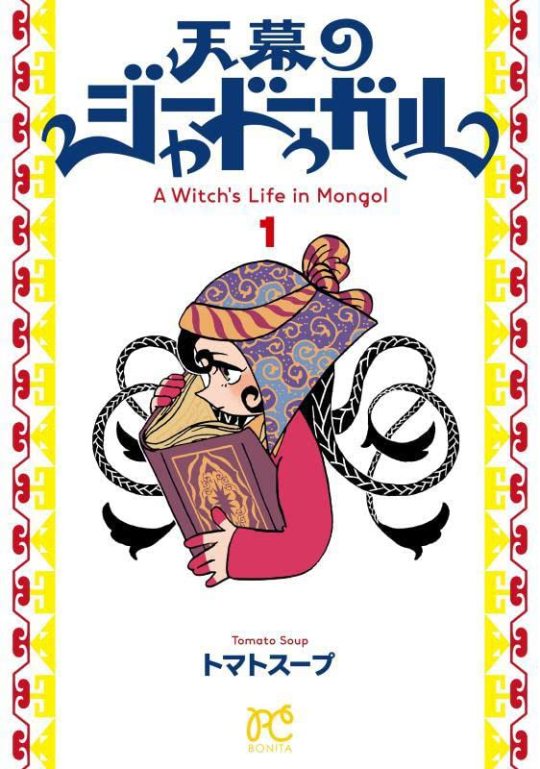
I hope you guys are ready for history and cultural lessons! I worked really hard on this post and she’s a long one... I literally just came back from an Iran trip and got some books, took pictures, and consulted people who know more than me for this post (the trip wasn't for the post, that was a coincidence lolllll).
This series won first place in the オンナ編 (Female Category) for the このマンガがすごい!2023 / Kono Manga ga Sugoi 2023 / “This Manga is Amazing! 2023″ which is a rather prestigious award. I’ve talked about the Male Category’s 1st, 2nd, 3rd place winners (2nd place will have a dedicated post one day), and plan to talk about the Female Category’s 4th and 6th place winners eventually. I guess I have good taste, what can I say? Jk, jk, but check the links if you’re interested :)

This post will be broken up into the following sections - What's It About? - Some Background - Representation - My Localization Choices - Story - Art - Culture Time! - Let's Talk Religion - The First Word From God, "Read".
Enjoy!
What's It About?
I usually don't like to go into plot details too much so you can discover the story for yourself. But since it isn't currently accessible in English at all, I figured I’d summarize the first chapter so you at least know what it’s about. Then I’ll summarize the rest of the chapters in a spoiler section for those who are interested. That way, we can all be informed enough to discuss it. I might touch on themes or other things outside the first chapter in the discussion, but I’ll try to do it in a way that doesn’t spoil for those of you who want to wait and read it for yourselves.
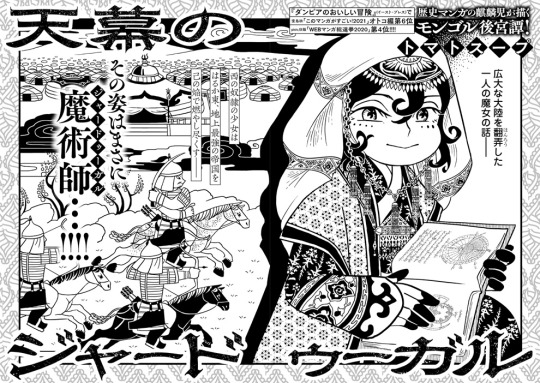
Chapter 1
We kick off with a rather poetic reference to scholars using geometry to measure the earth and the idea of trying to quantify fate. In 13th-century Iran/Persia, in the city of Tous, we meet a family looking for a domestic worker. The family is a woman, Fatima, who is newly widowed, her son, Mohamed, and her brother. A slave trader offers her some options, but they are rather pricey. So he suggests she take a little girl, Sitara, for a heavily discounted price. The slave trader asks Fatima to educate Sitara since they are a scholarly family, so she does.
However, Sitara plays dumb to ensure her value as a slave stays low. That way, no one would bother taking her to faraway lands to sell her for higher prices as she wants to stay close to her home to try and go back. Sitara tries to sneak out and runs into Mohamed, who talks to her about why he thinks learning is so great. He inspires her to pursue an education so she can have the tools to handle whatever life throws at her. Mohamed wants to travel and learn from others to find the "truth" for himself. He promises Sitara that he'll write letters to her and his mother, which further inspires her to learn to read.
The chapter ends with Mohamed leaving Tous, and the narrator tells us it was the last time Mohamed and Sitara ever saw each other.
Chapters 2-5
I'm going to speed through the rest now that we got the setup out of the way.
***SPOILERS FOR CHAPTERS 2-5***
*
*
*
8 years have passed since Mohamed left and Sitara has been pursuing an education under the direction of Fatima and her brother. While the Tous army is investigating strange activity near their borders, Fatima shows Sitara some things her late husband left behind such as books and astrology tools.
As the Mongols are closing in on Tous, Fatima and Sitara hunker down in a cellar to wait the threat out. Unfortunately, they're found, and one of the Mongol princes takes a book that belonged to Fatima's late husband. Sitara tries to stand up to him, causing her to be attacked. Fatima takes the blow, saying, "Don't touch my daughter," before passing away.
Tous is razed to the ground, and its citizens killed or driven out and forced to march to the Mongol camp. Sitara finds out that the city of Neyshabur, the city Mohamed is studying at, was also attacked. His whereabouts are unknown.
Interestingly, the Mongol prince was specifically looking for the book he took since his fiance had asked him for it. However, the book is in Persian and they are unable to read it. Sitara meets a boy who is interpreting for the Mongols in an effort to make himself more useful to avoid becoming a meat shield in battles for them. While he can speak Mongolian and Persian, he can't read. But, Sitara can. He asks her to team up with him to help each other become more valuable to their capturers. Sitara will read the stolen book, and the boy will translate. He suggests she come up with a more "elegant" or "majestic" name before presenting herself to the Mongol princes. She steps into their tent and introduces herself as "Fatima".
*
*
*
***END OF SPOILERS FOR CHAPTERS 2-5***
Some Background
Quick disclaimer, I'm by no means an expert. A lot of this is what I know and what I've experienced. I might have to make some generalizations or else we're gonna be here all day.
I feel like I’m about to overshare but I want to offer my perspective on this series. I don’t get to do this often so indulge me please lol. This background is so you have an idea of some things that influenced my perspective on this story.
For those of you new around here, I'm a Kuwaiti/Irani-American, Japanese to English translator (I speak English, Arabic, and Japanese).
What that means more specifically is that I've grown up/lived in America my whole life, visiting Kuwait when we could, until I moved to Japan after college. My parents are both Kuwaiti with Kuwaiti fathers, born and raised, but both of their mothers are Irani. They know Farsi to varying degrees of fluency as a second language. I never learned it since their first language is Arabic and that was the language they focused on teaching me while living in America. They usually spoke Farsi if they wanted to keep me and my brother out of a conversation between adults, rude. But I can sometimes pick up on some things being said. One of my best friends is Irani-American (Her name is also Fatimah! It's a ridiculously popular name) and our experiences are quite different, but there's overlap as well!
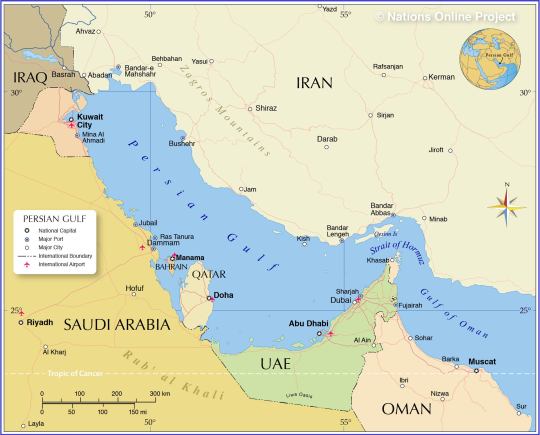
For those of you who don't know where Kuwait is. It's a tiny little country in the northern end of the Persian Gulf in Western Asia. FYI "Mina" in "Mina Al Ahmadi," which you can see on the map, means "port".
Most of our Kuwaiti relatives have Irani roots and some Turkish. There are a lot of ethnic groups in Kuwait because it started out as a port city that was a part of the Silk Road network. (I actually wanna study the Silk Road more!) So lots of people from all over gathered there. There are black Kuwaitis, those with blonde hair and blue eyes (my mom's relatives are like this), those with more East Asian features (my cousins), those with darker features (my dad's side), etc.

The Silk Road in the 1st century, courtesy of Wikipedia. You can see the route going through Kuwait. It was specifically part of the Maritime Silk Road route.
Because of all the trade, you can see the influences of many other regions in the food, clothes, language, culture, and so on.
But, yeah! History is cool.
Representation
I am indeed one of those people who is annoyingly passionate about representation. Like, I could write a whole Master’s dissertation on why it’s so important, but I’ll spare you… for now. More eloquent people have already done so anyways.
As you can imagine, I’m not used to seeing myself represented in media. And any representation I did get, was… well, how do I put this… not great? Bad™ actually. Beyond racist tbh. So can you blame me for being excited? I’m still mad about that one episode of Grey’s Anatomy when that girl whipped off her scarf/hijab to save a patient IN A FULLY STOCKED HOSPITAL!!! That would never fucking happen ;_; like imagine if you pulled your pants off to put pressure on a wound when the gauze is literally right there. I CAN’T, where do I even begin??? But I digress.
And even if I wasn’t a person from this culture, it’s just cool to see rep we don’t usually get! For example, Requiem of the Rose King is fresh in my mind right now, but having an intersex main character is not something I recall seeing. While not intersex myself, nor a noble from ye olde times, I related to Richard a lot and appreciate what the story did. I can see people from other cultures relating to Tenmaku no Jadoogar, or simply just learning new things about a culture we don’t get to see a lot of rep about. (I plan to write a follow-up post after I finish the series and talk about the rep in Rose King a bit more.)
My Localization Choices
There are no official spellings for this manga, so some explanations as to why I wrote things the way I did. Thankfully, these are all real-world names with context, so I'm not pulling nonsense out of thin air. Localizing uncommon/made-up names is... hard... traumatic flashbacks to when I had to look up official spellings for Gundam and Kamen Rider and the client didn't give me glossaries... Literally did research about Sypha Belnandes' name localization being all over the place for this blog post. Spoiler, I don’t think it was supposed to be Belnandes.
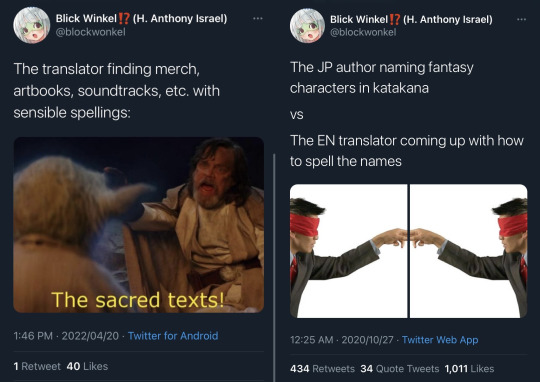
It really be like that...
Sitara - シタラ "Shitara". This isn't a name I was familiar with, so I asked my mom and Irani-American friend if it sounded like a name they knew. I wanted to say "Sitra" sounds like something that has a more "West Asian pronunciation" than the Japanese pronunciation in the manga. I was wrong and it's "Sitara" which means "star" just like what they said in the story.
Fatima - ファーティマ "Fātima". Same as my name! It's a super popular name. I katakana-fied my name as ファティーマ, which is the same, I just put the dash that elongates the sound in a different place. Why? Fatima is an Arabic name فَاطِمَة. In classical Arabic, it's pronounced like Fā-dtee-ma or Fadt-ma in Kuwaiti Arabic (the letter طِ doesn't exist in EN/JP and the best way I can describe it is it's like D+T sound.) An Irani pronunciation is more like Fā-teh-meh, which is what my grandma and Irani-American friends call me. In English, I personally pronounce my name like Fa-tee-ma, but people have various preferences. So basically, I took the Arabic and English pronunciations and katakana-fied it how I thought it would sound best in Japanese. And no one has ever pronounced my name wrong in Japan since katakana is phonetic and is actually pronounced how it's spelled. Wild I know. Meanwhile in America... *cries* I have a half-Irani-half-Japanese acquaintance who doesn't put any elongated sound in her name like ファティマ, and it's all just preference tbh. There are also different ways you can spell it in English, but "Fatima" is the most common way.
Mohamed - モハンマド "Mohanmado". This one is pretty straightforward. I think most people are familiar with this name. Also super popular. There are various English spellings as well, so I just went with a common, shorter spelling.
The title, 天幕のジャードゥーガル Tenmaku no Jadougal (this is how it's romanized on anilist), also doesn't have an official translation. It basically translates to Witch of the Marquee. Tenmaku="tent/marquee" in Japanese. ジャードゥーガル comes from جادوگر "jadoogar" meaning "witch" in Farsi. The romanization of the title should actually be Tenmaku no Jadoogar. There is no "L" in Japanese, so it often becomes "R". In Japanese, ジャードゥーガル is "Jādoogaru". Without context, it's often hard to tell if it's supposed to be "L" or "R" so I don't blame them for the mistake. But yeah, that's why I wrote it as Tenmaku no Jadoogar for the title at the top of the post. How do I contact the anilist admins about correcting that? Lol. The way my brain is short-circuiting trying to combine Japanese, English, my nonexistent Arabic reading skills since Farsi uses basically the same alphabet, and consulting my Farsi "sources"... my brain can only handle two of the three languages I speak at the same time...
1/7/23 EDIT: I asked anilist to fix the spelling of the title and it's been changed!
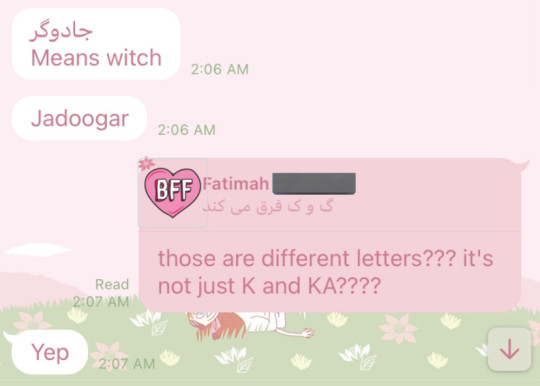
Shout out to Fatimah #2 for putting up with all my questions <3 Farsi has some extra letters that aren't in Arabic and I didn't know about that one...
Story
I’m starting to realize that I really dig historical fiction. Things like Requiem of the Rose King (current read, I'm obsessed), Vinland Saga, Bride’s Story (a priority TBR of mine), and Ertugrul (this one is a Turkish drama, highly recommend!) are so fascinating because we get to take a peek at what life used to be like, especially if the author did their homework. This story reminds me of Ertugrul at times since they both take place in West Asia during the 13th century, and the characters in both had run-ins with the Mongols.
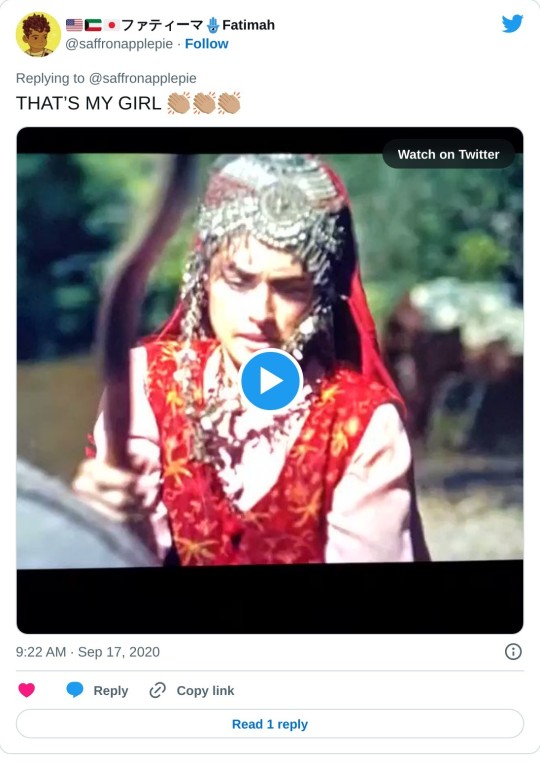
This baddie took out three Mongolian soldiers on her own!!! Well, her horse helped. Horses are great. I'm a horse girl, literally took riding lessons for ~4 years.
I found out while researching for this post that this story is in fact based on a real person in history! Here's the Wikipedia page, more info here by Dr. Jack Weatherford who wrote a book that I'm totally going to read once I can get my hands on it. I think this manga is going in a similar vein as Vinland Saga where the events are real historical events, and some characters were actual people in history, but the author is going to take creative liberties. (Check out Merphy Napier and Philip Chase's Vinland Saga discussions. They're great and Philip has a lot of historical knowledge relevant to that series that's super informative!)
The characters are lovable and interesting. I like Sitara's spunk, Mohamed's thoughtfulness, and Fatima's gentle nature, just to name a few. The relationship Sitara has with Mohamed and Fatima was very sweet. I'm interested to see how the relationship that I mentioned at the end of chapter 5 goes. Also intrigued by the bits of relationship dynamics with the Mongolian characters we have so far.
I got super excited when the theme of "learning/education" came up. Seeing how that looked back in 13th-century Persia, which was a hotspot for advances in many fields, is so cool! This story led me to do some research and asking around on topics I was familiar with, but not an expert on, and I learned things about my own culture/religion. More on learning and education later. But overall, a strong start and I can't wait to read more!
Art
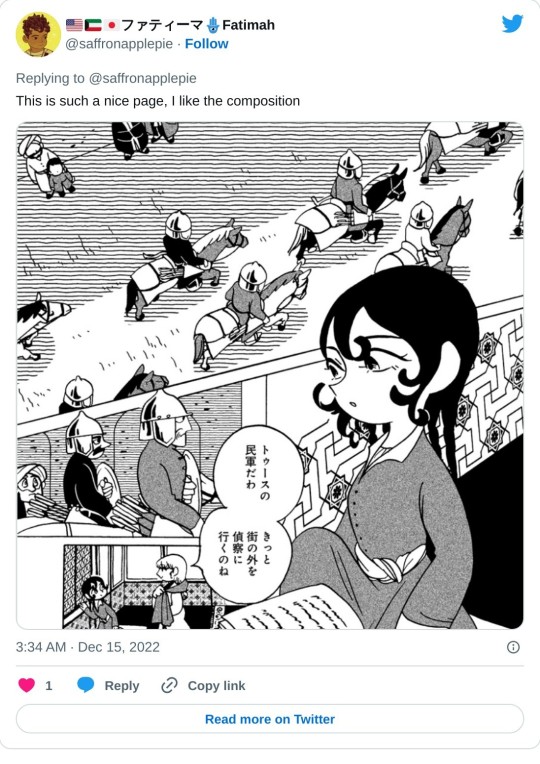
My twitter reading thread for this series
The art is very stylized, like a chibi-esque style with Persian art influences. I like the contrast between the simplified shapes and the detailed bits. I’m a big fan of inky blacks and white whites. I know all manga is black and white but this one feels like it has more contrast due to the simplified shapes. It's got tons of charm!
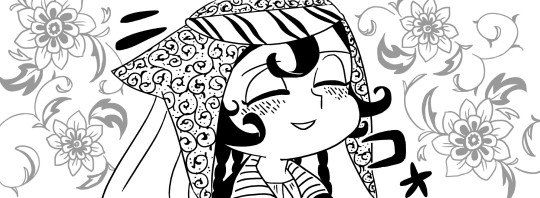
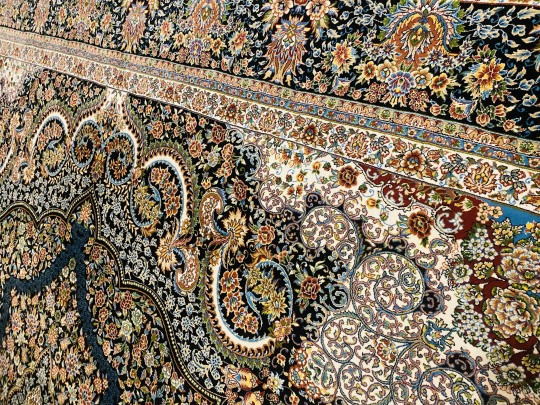
The shoujo-esque flowery background, but make it Irani-flavored✨ It looks like the rug we got in Iran!
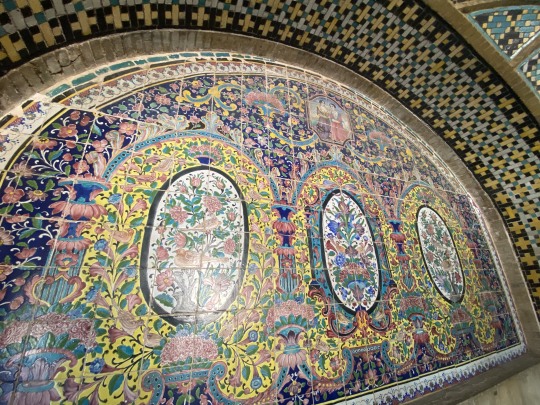
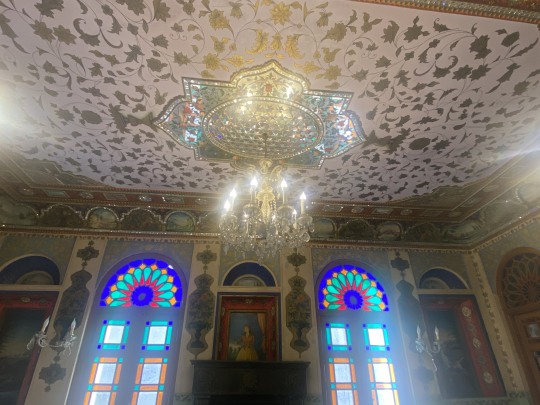
Some pictures I took at historical sites in Tehran with more examples of flowery imagery. Sorry if the image quality sucks, I didn't have my good camera :(
Culture Time!
As soon as I saw this cover, I felt a sense of familiarity. Particularly, the style of henna on her hands made me go, “Hey! That’s similar to how we do our henna!” While we also do the mehndi style henna (Is that the right term? Help) in Kuwait because of Indian influences due to longtime trade, we have another kind as well. You take the paste and hold it in your hands while curling your fingertips into it.
I had such a hard time finding pics that weren’t the intricate mehndi design ones. I would’ve just put henna on my own hands and taken a pic to show what I’m talking about, but it’s winter and it’s not good to use henna in winter because it has a cooling effect. I put henna on in winter once, and it made me so much colder. But makes you feel nice and cool in the summer! That’s why it’s traditionally applied to the head, hands, and feet, which are places you have a lot of heat dissipate from and it saps the heat away. I remember my mom doing that for me and my brother all the time when we were little during summer.
But! With the help of my mom, she helped me narrow it down. I didn't know the actual name of this style of henna. I just called it Kuwaiti-style henna lol. Apparently, it's حنه قصعة henna gasa'a, and bingo!

It doesn't show super well here, but the tops of the fingertips are also dyed like on the cover of the manga. Love that nazar ring though, so cute! 🧿

This is the mehndi style henna that people are most familiar with.

When I was little, I assumed that henna was made from soil because there are soils that can dye things a reddish color. But it's actually from a plant! The leaves are ground into a powder and then made into a paste when you want to use it.
Health, cleanliness, and hygiene are big deals in Islam. Other than being used for beauty and it’s cooling effect, henna is also used to keep oneself clean and smelling nice. It’s said that the Prophet Muhammad (PBUH) utilized henna as well.
I actually didn't know much about Iran's henna culture. When I asked my Irani-American friend whose family is from Tehran (northern Iran), she said she wasn't familiar with any. But like Kuwait, Iran has a lot of ethnic groups. It's also a large region (it used to be a whole empire and all that, too), so there are definitely people who do use it!
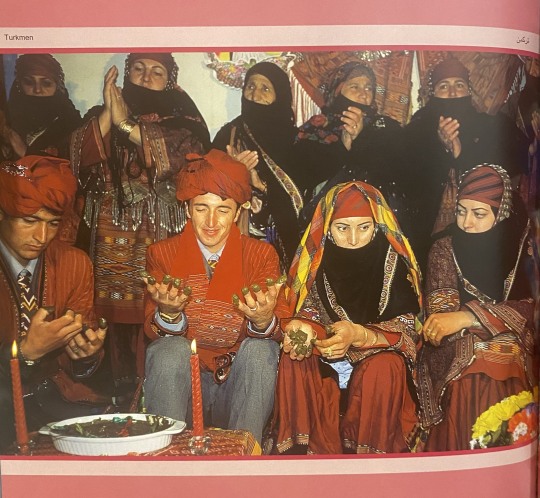
Turkmen Iranis, dying their fingertips with henna, exactly like in the manga! My family are Turk, too! (From a book I picked up a few days ago in Iran, "Nomads: Migrating with Swallows". What a pretty title...)
The clothing of the characters also felt very familiar. The cover of volume one reminded me of this picture:
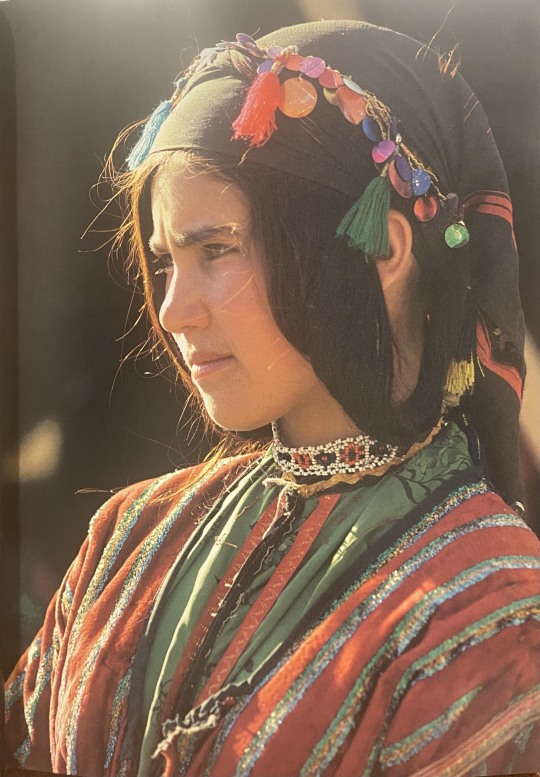
Maku Kurd girl ("Nomads: Migrating with Swallows")
Iran grows tons of fruit, herbs, and flowers, famously roses! Rose water is a staple we pretty much always had at home.
Rose water is used for medicinal purposes and has antibacterial and anti-inflammatory qualities. People often wash up with it since it has a lovely fragrance and makes you smell nice. It's also used in foods and desserts or added to drinking water for flavor and health benefits.

Sitara bringing Fatima rose water. It looks just like this 12th-century rose water container. We still have containers like this nowadays and I actually used one to wash my hands recently.

Faloodeh (Persian Lime and Rose Water Granita With Rice Noodles), Bastani Sonati (Saffron and Rose Water Ice Cream), in Kuwait we say Sharbat Nimil but apparently, it's Tokhm-e Sharbatie in Iran (Rose Water and Basil Seed Drink) Fun fact: Sharbat Nimil means "ant drink" because the seeds look like... ants... and the thought freaked me out as a kid, I never wanted to drink it. I thought my aunt was messing with me but my parents said, "Yeah, no, that's actually what it's called."
Dates! Another staple. Always have some in the house.
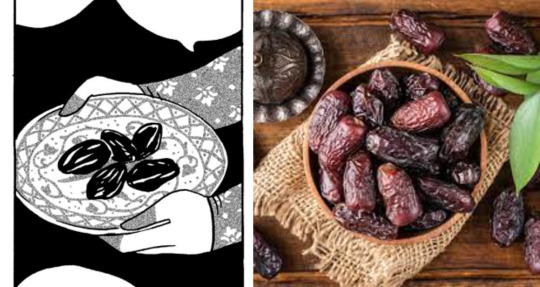
These are ripe dates. We call them "tamar". Sweet, delicious, amazing.

These are fresh dates! We call them "khalal". Sweet, crunchy, amazing.
The architecture was also, you guessed it, familiar as well. Particularly the courtyards! It really took me back.


Courtyards! My Irani grandma (also Fatima, I told you it was a popular name...) had a courtyard home in Kuwait too, but less fancy, and she had a huge date tree instead of a fountain. We would play there all the time when we visited. Also reminds me of the houses in some of the Irani movies I've seen.
Let's Talk Religion
I know religion is historically always a fun and totally not divisive topic, but we're all going to be civil and discuss stuff like adults. I'm not trying to convert anyone, I swear. Chasing after people and forcing religion down their throats is actually frowned upon in Islam believe it or not. I’m also not saying it’s a better religion than others or anything of the sort so don’t come for me. It's just relevant to the story and I'm hoping we can interact in good faith, so let's talk.
I am NOT a scholar, this is just what I know and my understanding so please don't quote me. I probably have to gloss over and simplify a lot because there's... too much.
There are various interpretations of Islam. The Quran, to my understanding, is meant to have its interpretations evolve over time to address the issues of people no matter the time or place. Issues faced centuries ago might not be as pressing now, or we might have new issues today that weren't a thing back in the day. Iranians mainly practice Shia Islam, which is also the sect I know most about so that's what we're focusing on.
Islam is the fastest-growing religion. It's also quite misunderstood due to hate/misinformation, AND — I'm gonna just say it, there are Muslims who have skewed interpretations of Islam's teachings. Am I the perfect Muslim and my interpretations are law? I didn't say that, obviously not. But I'm going to call it how I see it. I don't take sides and I'm not going to defend someone just because they identify as Muslim if they're doing stuff that doesn't make sense (that would be un-Islamic and just... dumb imo). But anyways, there are a few points I’d like to touch on so we all have a base understanding.
Many people think that Allah (SWT) is “the Muslim god” but actually, he’s the same god that brought down the Bible and Torah. He's just... God. This is why you’ll see a lot of crossover between these religions. And Christian Arabs, for example, say Allah because that’s just God in Arabic.
Why did God come up with different religions? It’s my understanding each religion was what the people needed at the time. (Also because of the next point)
Muslims DO believe in the original Bible and Torah, but historically there's evidence that these books have been altered by people over the years. (Again, I'm not saying your religion is wrong if you're Christian or Jewish. You do you.) Then what about the Quran? I’ll actually address that later.
Muslims DO believe in Jesus. We just think he's a prophet instead of the son of God or God.
Cool? Cool.
Now to address some religion-related things that came up in the story.
The part where there is the selling of slaves made me raise an eyebrow since slavery is not allowed in Islam, because, duh.
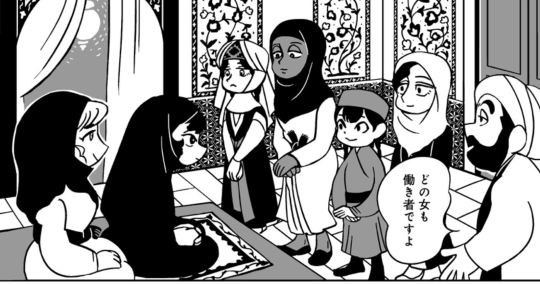
I did some research and asked around. I was able to talk to my Irani-American friend's aunt when I visited them during my Iran trip last week since she's studied this kind of stuff. She joked that I should save myself the trouble and not touch the slavery topic, especially with Americans since it's... like... a super touchy topic. But this is an important topic and we should talk about important topics instead of shying away from them — respectfully, of course. And maybe we can all learn something. It was a perspective on slavery that was very different from what I'm used to hearing about in America. She essentially confirmed what I was thinking.
The Quran envisions the ideal society as one in which slavery no longer exists. Since slavery was such a widespread issue around the whole world back in the olden days, (it still is an issue today, but I'm assuming it was worse back then) it was unfortunately unrealistic to try and abolish it in one fell swoop. Again, this isn’t just abolishing in one country or region, but tackling the issue worldwide. So, in Islam, the idea is that there are steps in place to phase it out. For example:
No free people can be enslaved, duh.
People cannot be enslaved due to debt or crime.
You are encouraged to help slaves buy their way to freedom by giving them money to do so or buying them to free them.
If you are in possession of a slave, you should free them.
If you house a slave, you must treat them well.
This last one is just an interesting thing I didn’t know about that I saw in my research and it came up in the story — Slaves get half the punishment for a sin than if the same sin was committed by a free person.
I wondered why then, did Fatima's family, not free Sitara and the other slaves? It didn’t look like they had anything stopping them from running away either. Sure, Sitara got scolded by another slave for trying to leave, but she could have tried again and run away. The other slaves in the story seemed like they wanted to/were okay with staying, even though they did wish they could go home and felt homesick. So what’s up?
It's my understanding that back then, it was common for people to take slaves into their families, offer shelter and educate them. It was a way to take them off the streets, away from the slave traders, and keep them safe.
Why not just take everyone back to their homes? Various reasons. They might be in danger if they try to go back. They might not have anywhere to go back to. Also, this was the 13th century. It's not like they could just hop on a plane and go home. There's also no law enforcement the way we have today. Hell, even with all the local and international law enforcement of today, slavery is still a major issue.
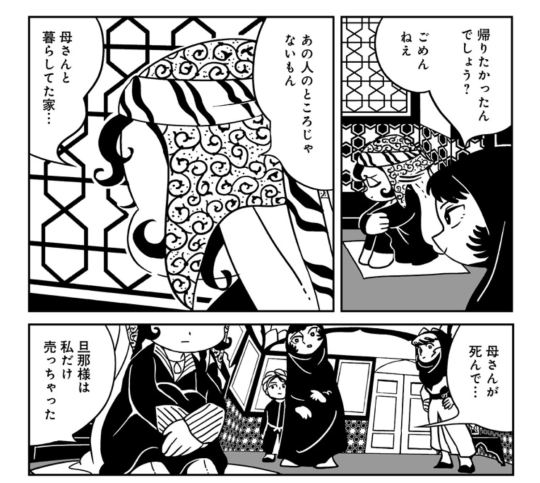
Sitara wants to go home but has no home to go back to.
Is this ideal? As I mentioned, ideally slavery wouldn't even be a thing. I’m pretty sure we can all agree slavery=bad. I'm not here to argue that. But I also think it's important to try and understand what things were like back then and why people did what they did. A lot of times I see people measure things with their standards that were developed in modern day, with their own life experience. You need to be careful when doing that. I'm sure in the future, people will look back at us like, "Damn, y'all lived like that???"
Perhaps, this was the best the average person could do. Try to protect them and offer them shelter and an education. As long as we don’t live in an ideal world, we need to consider various solutions to issues. So this was an interesting way to try and tackle the issue given the time and circumstances. It’s rather different from what I think most Americans know about this subject.
Did everyone do this? I'm going to say probably not. Terrible people always exist. Plus there are plenty of people who say they practice a religion, but cherry-pick what they want to follow, do the opposite, have distorted understandings of its teachings, or just downright weaponize religion to suit them. That's a whole other discussion though, so I'll leave it there.
I would like to read more about this topic though, so if anyone knows any sources, let me know!
The First Word From God - "Read"

"Slave or not, it is a Muslim's duty to seek knowledge, as stated in the hadiths."
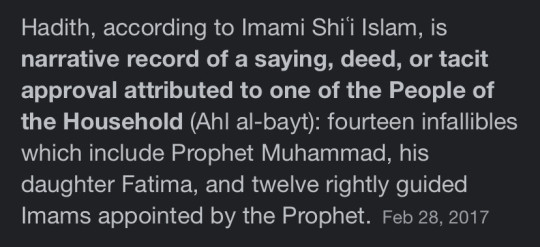
What's a hadith? Here you go. Also, this is the OG Fatima, Lady Fatima (PBUH).
When God first sent the angel Gabriel down to Prophet Muhammad (PBUH), his first word to him was, "read". Education and seeking knowledge are SUPER important in Islam, and should not be kept from anyone regardless of race, gender, etc. Seeking knowledge will make you a more rational, well-rounded person. Knowledge in this context is broad and all-encompassing. It doesn't only mean religion, math, and science, but philosophy, art, and so on. Literally anything. I hope I don't really need to convince anyone that education is a human right and empowering and all that stuff, so let's keep it moving.
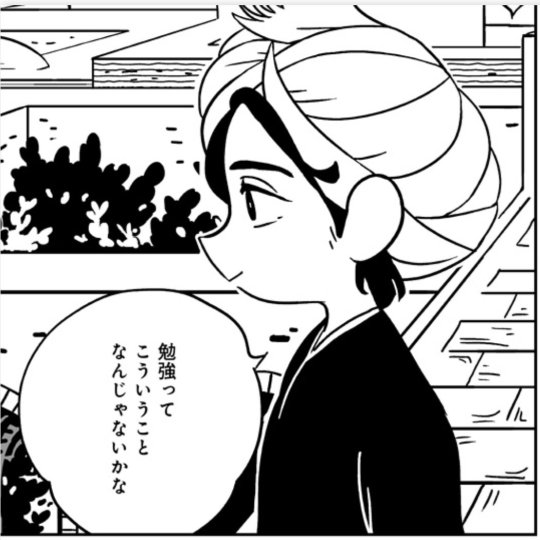
"Isn't that what learning is all about?"
To address this earlier point:
Muslims DO believe in the original Bible and Torah, but historically there's evidence that these books have been altered by people over the years. Then what about the Quran?
Tbh, I hesitated to include this part because people might misinterpret or take offense. To reiterate for the umpteenth time, I'm not saying your religion is wrong if you're Christian or Jewish. You do you. We’re actually told to respect believers of these religions. I swear!
So, yeah. Moving on.
Another reason seeking knowledge is an obligation in Islam is so that you are able to read the Quran for yourself. When loads of people read it, memorize it, and are familiar with it, any changes will not go unnoticed. This is to stop people from weaponizing and distorting the Quran's teachings. And this is why there is only ONE Quran, and not multiple versions (I’m not talking about translated Qurans).
In general, having knowledge about things makes you less susceptible to being lied to or misled, regardless of the topic. Unfortunately, I'm in the camp where I believe not enough people do their own research and reading. And again, I don't just mean religion, but everything. That kind of thing takes effort, and effort is hard.
Go read!
You're Still Here?
Like the first-place winner for the Male Category, The Summer Hikaru Died, which I’ve been pushing on anyone who will listen since volume one hit bookstores in Japan, Tenmaku no Jadoogar: A Witch's Life in Mongol deserves to win the Female Category. From what I can see so far, it’s well researched and written with love. I'm looking forward to seeing how this story unfolds and I may add more thoughts as we go.
Volume 2 is due to come out February 16th, so I’ll be tweeting my thoughts on my reading thread. The link to this post is on Twitter here if you want to share it there. EDIT: Volume 2 post is up!
If there's anything else you'd like to see me discuss or expand on, let me know and I'll see what I can do. I'd love to hear what others think!
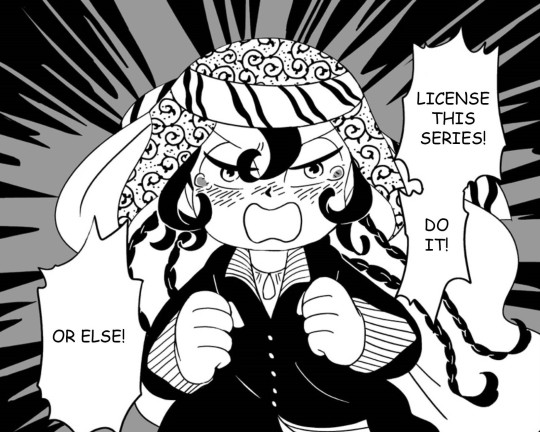
I await your email publishers, my resume is ready... [email protected]
🧿🪬🧿🪬🧿🪬🧿🪬🧿🪬🧿🪬🧿🪬🧿🪬🧿
—————————–
If there’s any Japanese-only manga you want me to check out, let me know! No promises, I’ll only read what I’m interested in, but I’ll take suggestions into consideration. Preferably, shorter manga or newer manga with a few volumes out since I like to take breaks from longer series I’m reading :)
#天幕のジャードゥーガル#Tenmaku no Jadougal#A Witch’s Life in Mongol#manga recs#manga#漫画#おすすめ#Tenmaku no Jadoogar#manga recommendation#kono manga ga sugoi#このマンガがすごい#manga discussion#shoujosei#josei#josei manga
175 notes
·
View notes
Text
Queer Religious Songs

I was interested to see the news that a song by the drag queen Flamy Grant was top of the iTunes Christian chart. I listened to the song and really like it.
There are many religious songs I like, but these queer ones speak to a part of me that the others don’t, they ask questions that are important.
1983 - Church of the Poison Mind : Culture Club - A religious gay man has found love, but because of what he was taught at church, can’t resolve his own feelings about being gay. The message is if you’re living in a culture distorted by prejudice, take a chance on joy–embrace love, whatever form it takes.
1987 - It’s a Sin : Pet Shop Boys - This song is about a person’s lifelong feelings of shame and guilt, presumably for being taught that being gay is a sin. For everything I long to do, no matter when or where or who, has one thing in common, too. It’s a, it’s a, it’s a, it’s a sin.
1988 - A Little Respect : Erasure - In this song the gay singer is calling to a lover not to leave and asks the question, what religion or reason could drive a man to forsake his lover? So often the religions we’re raised in are anti-queer and people have a tough time breaking from the prejudice when they have their first romantic relationship.
1991 - Losing My Religion : R.E.M. - Lead singer Michael Stipe had declined to address his sexuality, so when “Losing My Religion” came out, people assumed Stipe was coming out as gay. Consider this the hint of the century. Consider this the slip. It stands as a classic example of queer coding in the era of “don’t-ask-don’t-tell.” The song was interpreted as the struggle of a closeted gay man coming to terms with what his religion taught about gay people.
1992 - One : U2 - Bono explained that “It’s a father-and-son story. I tried to write about someone I knew who was coming out and was afraid to tell his father. It’s a religious father and son… I have a lot of gay friends, and I’ve seen them screwed up from unloving family situations, which just are completely anti-Christian. If we know anything about God, it’s that God is love.” Knowing it’s a gay son who is talking to his unaccepting dad, the lyrics really hit hard. Did I disappoint you or leave a bad taste in your mouth? And also these words from the chorus, We’re one but we’re not the same. Well we hurt each other then we do it again. It seems eventually the son decides to draw a boundary and remove his father from his life - I can’t keep holding on to what you got, 'cause all you got is hurt. I like that the lyrics say We get to carry each other, carry each other, we are different and may not agree on everything, but we choose to help each other, it’s asking us to find ways to have our relationship work even though we’re different.
1997 - You Have Been Loved : George Michael - George Michael wrote this song about Anselmo Feleppa, who died of an AIDS-related illness in 1993. While an intense song about grief and death, it also involves a spiritual struggle. Anselmo and his mother both say that God is not dead, George counters by challenging What’s the use in pressing palms, if you [God] won’t keep such love from harm? It’s a cruel world. You’ve so much to prove.
1997 - Together Again : Janet Jackson - The album notes say “I dedicate the song ‘Together Again’ to the friends I’ve lost to AIDS.” It’s a sweet song with hopeful words. Everywhere I go, every smile I see, I know you are there smilin’ back at me.
2011 - Born This Way : Lady Gaga - Many songs hint at queer identities and acceptance by using metaphors, but not this one, it is direct. No matter gay, straight, or bi, lesbian, transgender life, I’m on the right track, baby, I was born to survive. The song is a real celebration of who we each are made to be. God makes no mistakes.
2011 - We All Try : Frank Ocean - Frank Ocean sings of losing faith in mankind as the LGBTQIA+ community struggles to find acceptance. I believe that marriage isn’t between a man and woman, but between love and love, and I believe you when you say you’ve lost all faith, but you must believe in something. He reassures the listeners and the LGBTQIA+ community that I just don’t believe we’re wicked, I know that we sin but I do believe we try.
2012 - Same Love : Macklemore & Ryan Lewis feat. Mary Lambert - Macklemore sings against the homophobia taught at church. When I was in church, they taught me something else. If you preach hate at the service, those words aren't anointed and that Holy Water that you soak in is then poisoned. The song concludes with Mary singing I’m not crying on Sundays, which I think means not letting religious intolerance and churches harm us anymore, not subjecting ourselves to those words anymore.
2012 - Origin of Love : MIKA - Mika said this song “talks about my life, it talks about the church, it talks about falling in love and it talks about being happy and proud about falling in love with whoever you fall in love with, even if it’s a man. So in a way, this is my statement and my thank you to the man I love.“ To his partner he sings You are the sun and the light, you are the freedom I fight, God will do nothing to stop it.
Mika contrasts the goodness romance brings to his life with how the Bible introduces heterosexual relationships: Like stupid Adam and Eve, they found their love in a tree. God didn’t think they deserved it. He taught them hate, taught them pride, gave them a leaf, made them hide. Let’s push their stories aside. You know the origin is you.
2013 – Take Me to Church : Hozier - The lyrics are against church-fueled homophobia and persecution of queer people, and instead Hozier finds meaning by worshiping in the bedroom. Many queer people can identify with these lyrics: Every Sunday’s getting more bleak, a fresh poison each week. "We were born sick", you heard them say it. Hozier explained that churches undermine humanity as they teach shame about sexual orientation by saying that it is sinful or that it offends God. Hozier is an outspoken LGBTQ+ ally and the music video depicts two gay men being ripped apart by homophobic violence in Russia. It brought international attention to the anti-gay laws in Russia.
2015 - No Place in Heaven : MIKA - Mika is singing about how religion teaches there’s no place in heaven for gay people because the way we love is sinful. Father, won’t you forgive me for my sins? Father, if there’s a heaven let me in.
2016 - Son of a Preacher Man : Tom Goss - This 1968 song gets a gay update. The video tells the story of two gay teens struggling to understand their feelings for one another while operating within the confines of an evangelical church.
2016 - Trash : Tyler Glenn - In response to the Nov 2015 Policy of Exclusion by The Church of Jesus Christ of Latter-day Saints, Tyler created this video denouncing the Church’s restrictive view of same-sex relationships. The pain and anger are so raw in this video, it hurts to watch. These lyrics are an indictment, that he’d repent his days away if we wanted him to stay, but we throw him out like trash. If this is God’s church then there should be room for ALL God’s children.
2016 - Shameless : Tyler Glenn - The video has an old man in a black suit & white shirt tied up to a chair as Tyler sings You judge, but I don’t give a damn. I live a life so shameless. He lists things he does shamelessly now that once he would’ve been judged for: porn, one-night stands, alcohol. Tyler has now left the church and is not letting old men in suits make him feel shame.
2016 - G.D.M.M.L. Grls : Tyler Glenn - Despite the best efforts by this gay man to make church work, it didn’t because God Didn’t Make Me Like Girls.
2016 - Heaven : Troye Sivan feat. Betty Who - Troye sings candidly about what it’s like for a religious teenager to come out as gay. Without losing a piece of me, how do I get to heaven? Without changing a part of me, how do I get to heaven? All my time is wasted, feeling like my heart’s mistaken, oh, so if I’m losing a piece of me, maybe I don’t want heaven? Troye explains “When I first started to realise that I might be gay, I had to ask myself all these questions—these really really terrifying questions. Am I ever going to find someone? Am I ever going to be able to have a family? If there is a God, does that God hate? If there is a heaven, am I ever going to make it to heaven?” The video features footage from LGBTQ+ protests throughout history.
2016 - Sudden Death (OMG) : Tyler Glenn - In this song, Tyler expresses the initial shock of his faith crisis. I never asked to fall from grace. Catch me I’m starting to fall! Don’t know what all this is for! Keep comin’ at me with your disrespect. You went and started a war. Now I don’t care any more. I keep on living like it’s sudden death.
2016 - Devil : Tyler Glenn - A song that highlights the conflict between religious belief and queerness. I found myself when I lost my faith and not being able to pray the gay away. The constant in his world, what he’s anchoring himself to, is that his mom still loves him, and that’s important because studies show the acceptance & love of a parent makes a huge difference when someone comes out.
2016 - Queer Gospel : Erin McKeown - This song was written in response to the ongoing trend of "religious freedom" legislation being passed by some US states. Love us as we are. See us and we're holy. In this shall we shall ever be, wholly ourselves.
2016 - Midnight : Tyler Glenn - The Neon Trees frontman gives an emotional song about his departure from the Mormon church but not from God. The ballad is accompanied by a video that shows Glenn removing his religious garments and replacing them with a glittery jacket, which is such a powerful metaphor.
2017 - The Village : Wrabel - There are lyrics in this song of what religious people have told him, and boy do they hurt. They say, 'Don't dare, don't you even go there, cutting off your long hair. You do as you're told' Tell you, ‘Wake up, go put on your makeup, this is just a phase you're gonna outgrow.’ There’s a line in the song that hits me hard: One line in the Bible isn’t worth a life. The video is beautiful, very poignant, it breaks my heart and gives me hope.
2017 - Pray : Sam Smith - You won’t see Sam in church, but they say they’re a child of God at heart and they’re begging God to show them a way. I'm not a saint, I'm more of a sinner. I don't wanna lose, but I fear for the winners.
2017 - HIM : Sam Smith - This is a song about a boy in Mississippi coming out and the conflict between his sexuality and his religious upbringing. He is grappling with the feeling that there’s no place in church for him because he’s gay. The “Him” being sung is used both for God and for a boy he likes. Holy Father, we need to talk. I have a secret that I can't keep. I'm not the boy that you thought you wanted. Please don't get angry, have faith in me.
2018 - Explaining Jesus : Jordy Searcy - Jordy grew up playing music with his family and in his church. In 2014, Jordy landed a spot on NBC’s The Voice. In this song, Searcy is apologizing for how poorly we have been “Explaining Jesus” to others. He begins by singing If you're gay and over 85, you've felt for your whole life, that when God made you, he just messed up. The song ends with And I'm so sorry for all the wrongs. We're broken singers with broken songs. We paint our pride and call it truth. I'm sorry no one explained Jesus to you.
2019 - Hey Jesus : Trey Pearson - Trey made headlines in 2016 when, as the lead singer of the Christian rock band Everyday Sunday, he came out as gay. Three years later and Trey has a question: Hey Jesus can you hear me now? It’s been awhile since I came out, I was wonderin’ do you love me the same? As a person who struggles to reconcile faith with sexual orientation, I find this song quite moving.
2020 - God Loves Me Too : Brian Falduto - Brian played the gay kid in the movie School of Rock. Now as an adult, Brian is back and singing a song that no one has to earn God’s love. Brian wrote the song after visiting a church that was welcoming and accepting of queer people. I look around and see I’ve found a place where peace and love abound. I’ve waited my whole life for the truth. It is true, God loves you. It don’t matter if you’re LGBTQ.
2020 - Chasing Rainbows : Big Freedia feat. Kesha - Freedia is a gay Black man who carries a purse and uses “he” and “she” pronouns. Kesha is bi. Together they put out an uplifting song. Freedia lists the various ways she’s been put down throughout her life by schoolyard bullies, religious figures and record labels. Kesha makes clear we won’t be put down any longer when she sings You know me, bein’ free. Won’t be silent, I pray for my enemies.
2020 - Jesus Christ 2005 God Bless America : The 1975 - This song has Matty Healy pondering religious faith and love from his perspective as a queer person and describes hiding his sexual identity because of his religious beliefs. Phoebe Bridgers, who is bisexual, contributes a fragile and vulnerable verse. She sings of her love for the girl next door. Her love is unrequited as she is unable to reveal her true feelings to her neighbor.
2020 - Orphans of God : Ty Herndon & Kristin Chenoweth feat. Paul Cardall - The message of the song is that there are no orphans of God. We are all loved, we are all thought about, we are all created equally and God loves us all just the same. Ty Herndon is a country singer who came out as gay in 2014
2021 - I Know it Hurts : Paul Cardall & Tyler Glenn - This makes me think of a queer person coming to recognize their insecure place in church, how all those negative teachings were about you. I just wanted to believe, but how am I supposed to believe this about me? And then we find each other, queer believers who can understand what we’re going through, who know the hurt and the teachings and comments. For most queer people, they leave church and go on a different path. They’re not lost, a faint light at the end is guiding their way, they’re finding another way back home.
2021 - It’s a Sin : Elton John and Years & Years - This arrangement of the 1987 song by the Pet Shop Boys was recorded by the gay icons Elton John and Years & Years for the 2021 Brit Awards. The words are about a person’s lifelong feelings of shame and guilt for being taught that being gay is a sin.
2021 - Born this Way (The Country Road Version) : Orville Peck - For the 10th anniversary of this iconic song, gay singer Orville gives it a country music makeover
2022 - Good Day (feat. Derek Webb) : Flamy Grant - Matthew Blake was a worship leader for 22 years who has become a “shame-slaying, hip-swaying, singing-songwriting drag queen” named Flamy Grant. The lyrics talks of coming back to church after having left for feeling oppressed. They’ve come back to church because despite what some say, God’s love is expansive enough for everyone. God made me good in every way, so I raise my voice to celebrate a good day. This song hit #1 on the iTunes Christian chart.
2022 - If I Was Gay : Andreas Wijv - 29 year old Swedish singer and model Andreas Wijk wrote this song and debuted it in a TikTok video where he plays it for his parents as his way of coming out. It’s a vulnerable song that many will relate to. If I was gay would I be what they say, just a stereotype? If I was gay how do I get to heaven when there’s “no church in the wild”?
2023 - Faith : Semler - Grace Semler Baldridge performs by the name Semler and is genderqueer and nonbinary. Semler grew up with a dad who was a pastor in the Episcopal Church, and sings of how the rejection of their identity by the church left them scarred. When my religion turned against me, they said my hopes and dreams were faulty. I showed these holes inside my hands, and they claimed they couldn’t see. Even as they struggled with the church, Semler kept a relationship with Jesus and found they flourished far more than they did in church, and now the thought of going back to a church is unappealing. But I don’t wanna get small to be in those rooms. After singing about their religion turning against them, we hear the lyrics Our God is good and able, and our God is flipping tables at the mess of love we made a religion that often didn’t accept their identity. This song was released in June and before Pride month was over it reached the top of the iTunes Christian music chart.
2024 - Hell Together : David Archuleta - This is a song of David’s experience at church as a gay person: Bow your head, don’t be bold. You’ll survive by doin’ what you’re told. It became too much and he worries what his mom would think if he leaves the church: All I want is to make you proud. If I would run, would I let you down? In response, she replies: “If I have to live without you. I don’t wanna live forever in someone else’s heaven. So let 'em close the gates. Oh, if they don’t like the way you’re made, then they’re not any better. If Paradise is pressurе, oh, we’ll go to hell togethеr.” A beautiful story of a mom supporting her queer child. In response to his mom, he answers that he’s worried about what’s ahead but is confident to take those steps together: You and me, that’s all we need. Blood is thicker than the pages that they read. I’m afraid (I’m afraid) of letting go, of the version that I used to know. I’m not crying, you are.
58 notes
·
View notes
Text
This took a while to write up. Here’s something about Dune and Villanueve’s adaptation. I felt I really needed to chew on it before posting.
This is by no means a full thesis, just putting down some thoughts on Chani and Paul. I’m trying to minimize my use of story-specific terminology so that people who aren’t as familiar with that can still follow along.
Of course, massive spoilers below.
For those that have only seen Villanueve’s films, they are an adaptation of Frank Herbert’s Dune, the first book in a series. You’ll find an incredible number of critiques and reviews of them online, as well as other adaptations. All of the adaptations have cut at least one part of the main plot, for varying reasons. Note that I said main plot. Cutting side plots is absolutely expected given that the first book is a behemoth, but each adaptation also cut part of the actual main plot line. That isn’t something unique to Villanueve’s films.
Some book background: Dune is a very thoughtful exploration of imperialism and ecology, particularly how certain patterns are reflections of each other. Most of the story takes place on Arrakis, a desert planet and sole source of melange, colloquially called “spice.” Spice is a mind-enhancing drug that is necessary for navigators to manage intergalactic travel at high speed—so it is the backbone of the intergalactic empire that plants aristocratic families on the desert planet of Arrakis to harvest the spice, which of course involves the oppression of the native Fremen that see the worms as religiously sacred. The atrisocrats use varying combinations of violence, diplomacy, and religion to oppose the Fremen at the same time that they appropriate Fremen knowledge of how to survive the incredibly harsh clime of Arrakis.
The key problem is that Arrakis as a habitat cannot change without endangering the sand worms that provide the spice. Terraforming to shrink the deserts where they live puts them in danger because water (the rarest resource on Arrakis) is fatal to the worms. Liet-Kynes (an ecologist from the Empire and half-blooded Fremen) persuaded Fremen leaders that it would be possible to terraform the planet gradually over dozens of generations and eventually create pockets of safe and habitable land for the Fremen without taking too much from the sand worms. The Atreides family learned this from Liet-Kynes before he died, and Paul eventually sets this plan in motion when he becomes Emperor. That plan was what won over the Fremen to his side. He had an actual plot to get them what they wanted, a path to become Emperor so he would have the power needed to make it happen, and intent to do this in a way to safeguard Fremen culture in the face of imperial exploitation by making the Fremen the dominant culture of the Empire. At least, that’s the story he sold them and himself.
Dune Part 1 did not have that facet. Liet-Kynes did not teach that to Paul and Jessica before dying. In fact, Liet-Kynes’s most lampshading scene of dying in the desert while despondently hoping that the Fremen would “beware of heroes” was cut entirely from the film. Now, that is a small deviation, and I can understand that Villanueve would have cut it for his style anyway. He doesn’t like telling—he favors showing in film. That is perfectly fair. Having a character lay out “this is my plan” and telling the audience blatantly “Paul is a hero and that is not a good thing” just wasn’t going to happen anyway, regardless of whether it was part of the plot. So when Part 1 came out, I didn’t take that as a decision to deviate from the actual plot of the book. I figured Villanueve would introduce these things otherwise, and it would make sense to come from Stilgar or another Fremen leader. Not that big a deal.
(Note: I’m not getting into a lot of the other omissions, such as the missing scenes, Gurney’s paranoia that Jessica had betrayed the Atreides, Paul’s mentat training, Jamis’s funeral, etc. I could literally write a book about everything that was left out, and honestly, it’s just more reason to read Dune.)
For Part 2, the biggest difference in is that Chani is a true believer in the prophecies that Paul is the Lisan al-Gaib, the messiah that would lead the Fremen to paradise. In the film, Chani is not merely a skeptic—she is a nonbeliever. As a result of this change, rather than support Paul, bear his first child, and agree to become his concubine (eventually bearing the twins that feature in the next two books), Chani of the films instead does not have his first son, disputes Paul’s claims, and leaves on her own rather than support his war. Additionally, although it’s not facially relevant, Chani is also the daughter of Liet-Kynes, the Imperial ecologist, and so is a mixed blood Fremen (though she is accepted without issue by the Fremen). Instead, in the film, Chani has no connection to Liet-Kynes.
This is a drastic change in plot. I genuinely do not know how that will be remedied so that Chani will bear the twins that eventually rule the universe and lead the empire down the prophecied Golden Path in later books.
Why is that a big deal?
To start, there is a significant change in symbols used between the book and film in this respect. I cannot overstate the importance of Chani as a symbol in Dune. In the books, Chani is a stand in for the Fremen and their culture, particularly that culture in current day. She is the daughter of Liet-Kynes because the current Fremen cultural goal is to bring about that dream of a terraformed Arrakis where they do not need to live so desperately. That is inseparable from the effects of the Empire; her father is an ecologist because that is the Imperial influence that the Fremen were willing to accept and integrate into their own lives. Paul genuinely loves Chani, is protective of her, wants her to thrive, and eventually wants to become the person of the prophecy she believes in. He wants to be the hero she expects of him, without losing his identity as her partner.
However, Chani does not represent all Fremen. Stilgar, Chani’s uncle, represented the old guard of Fremen that rigidly held to their old laws and ways of living. Paul and Jessica were not given any leniency; they had to prove themselves to become Fremen, and his support was clearly conditional upon that. As a result, to gain the Fremen’s respect and move them towards their common goals, Paul and Jessica assimilated into the Fremen culture, and then Paul systematically destroyed his rivals—which is the Freman way—taking the remainder under his banner to fight the Harkonnen. Paul finally broke from that tradition when he chose to let Stilgar live, convincing the old guard that it was better to cut down their enemies rather than each other for deviating from tradition. Chani stood by Paul the entire way, learning how fight Harkonnen from both Paul and Jessica, learned to use the Voice from Jessica, and became Paul’s most staunch supporter and connection to all other Fremen. Every aspect of Chani’s identity and her choices feed into the narrative that the Fremen had expectations of Paul, he willingly rose to the challenge, and they loved each other fiercely.
But near the end of the first book, Paul sent Chani and their firstborn son to a hopefully safe location that was then attacked by the Harkonnen. Paul did not know if either had survived at the time it was reported. Rather than rush to find them, Paul struggled with the decision and ultimately continued the fight against the Harkonnen. This was to tell the reader that Paul’s love didn’t save them, that he was not going to save the Fremen, and he was going to continue his bloodshed. This had already happened, and was going to happen again. Luckily, Chani survived, they mourn their son, and she agrees to be his concubine so that he could marry Princess Irulan and become Emperor. Everyone knew at that moment that Paul had no love for the princess and the marriage was purely political. Princess Irulan resented this until the end of the next book, when she reveals that she also came to love Paul, and she was jealous of Chani. But Paul did not love Irulan the way he loved Chani. It’s again a reflection that Paul truly loved the Fremen culture and saw the Empire only as a means to an end: achieving the Fremen’s goal of creating paradise on Arrakis. Dune ends with that affirmation.
In the film, that is no longer the case. Chani was not a symbol of Fremen support because she set out alone. Most of the Fremen supported Paul. She didn’t believe in Paul or the prophecies when most did. She didn’t have his firstborn and it remains to be seen if the twins will exist. Rather than Paul making a decision that shows he will destroy the Fremen culture, Chani makes a decision to reject him. This changes the dynamics involved in the story, and I genuinely don’t know if it will be handled well.
The next books continue the story years after Paul becomes Emperor. In Dune: Messiah, Paul wrestles with the duties of Emperor while attempting to preserve the Fremen culture (to keep Chani and their unborn children alive) and fulfilling his roles as prophet and leader. At the same time, he is beset by assassination, rebellion, and usurpation attempts. At the end of Messiah, Chani dies while birthing twins, the worms are beginning to die off, Paul loses hope in his plan, and then he walks off into the desert expecting to die because he does not want to become the Emperor he foresees necessary to continue this plan. He realized he has changed the Fremen forever, not for the better, and he thinks the best thing he can do is exile himself. Paul didn’t save anyone he cared about, and when faced with the decision to try to salvage the future in front of him, he walked away. Paul is a failure. The point is that he fails in the book titled Messiah.
The books were an ongoing warning that no matter your good intentions, no matter the support and love and resources involved, to introduce an outsider whose power depends upon a limited resource into the place of origin will eventually destroy any other aspects of it, even if that power was intended to preserve. Whether it’s imperialistic appropriation of a culture and its religion, or terraforming to change land optimal for a religiously and economically significant animal into something comfortable for another species, the thing you love will die.
You cannot save a habitat by introducing an invasive species. You cannot save a unique species by destroying its habitat. You cannot save a culture by using it to conquer others. You cannot appropriate a culture and keep it just like it was before you commandeered it. You will wind up with something else, and eventually the only remnants of the thing you loved will be memories reenacted by people so separated from the original that they won’t even know or care why they’re doing it (as shown in Messiah and God Emperor).
The entire point of the Dune series is that “white saviors” don’t actually exist. They’re “heroes” until time reveals that they’re not. They are merely conquerors with the delusion that they are saving the thing they sacrificed in order to attain power.
Chani’s rejection in Dune Part 2 erodes that. Someone who didn’t read the book is going to wonder, “what if she had stayed and persuaded him?” “What if Chani was the Lisan al-Gaib?” “What if an actual Freman had taken over the Empire instead of Paul?” Then the audience thinks, ah, of course, Paul made mistakes and that’s why he’s going to fail. If only he hadn’t been so blinded by ambition, everything would have been fine. If only he hadn’t needed to be the leader, if he had let Stilgar do it, if he had let Chani do it, etc. In other words, if the white savior had just done it the right way, it would have worked.
But that isn’t the point of Dune. To become the leader of an Empire requires that level of ambition. Stilgar submitted to Paul because he saw that Paul’s ability to engage with both the common folk and the extremists among the Fremen was absolutely necessary to defeat the Harkonnen, and Stilgar chose that over any other priority. Chani supported Paul because she loved him and genuinely believed he would lead her people to better times, because all she knew was desperation and oppression. There was ruthless calculation and devotional love in equal measure, but the cost of success as a hero seeking to lead an empire is that the thing you loved will die. The Fremen had already changed into the bloodthirsty, fanatical army before Paul ever saw the Emperor face to face. Paul’s son died and Chani went missing because Herbert was telling us that the future Paul and Chani both wanted was already dead before he laid siege to Arrakeen, before he became Emperor, before he started a war to solidify the Freman’s domination of humankind. The reason that everything in Dune eventually works in Paul’s favor is because even with perfect conditions, he failed. There is no world in which he would have succeeded.
You can’t eat a cake and have it too. Empires eat. Heroes, no matter how much love they have in their hearts, no matter who they fight for, no matter how much their supporters/victims wanted it too, cannot use an empire to save anything. The very nature of imperial power is to consume. Love doesn’t make a “white savior” any less imperialistic than a tyrant bent on conquest.
Is the next film going to get us to that point? I don’t think it will. I think it’s going to be yet another adaptation trying to tell a different message because Herbert’s message isn’t very palatable to a mass audience. We don’t want to hear that love doesn’t win in this circumstance. It’s a horrifying message, but it’s one that’s true when telling the story of imperial and ecological exploitation of cultures and rare resources.
That isn’t to say that the films wouldn’t be a good story on their own. It’s just not the story of the books, and I’m one of those people that actually likes the books.
There’s a lot of ways Chani’s new story could go, and I’m watching it like I’m observing someone setting up a dare devil leap. Villanueve is an incredibly skilled storyteller, but this is something no one’s done before, a lot of things can go wrong, and if he doesn’t stick the landing, it’s gonna be pretty gross no matter how the crash happens. I want him to succeed. I’m still gonna watch the next film. I’m just well aware that this is probably going to end in a watered down, generic “Paul failed because he wasn’t Fremen” sentiment rather than “Empires rely upon exploitation and destruction, at the expense of everything else.”
It’s still fucking amazing eye candy, and I’ll probably watch it again.
16 notes
·
View notes
Note
Daenerys destroy everything she touches. It’s just INSANE just how much damage and chaos her incompetence, stupidity and entitlement has done to Astapor.
She took the city’s entire defense force, the Unsullied, with her when she left, with no real thought as to what will happen when you leave a power vacuum, and set up a council to govern the city that had absolutely no means to enforce its will or its laws. One of the men on the council is specified as being a “priest,” but since the clergy of the Ghiscari Harpy religion are only ever described as female (the Graces), it seems quite likely, if not outright definite, that she appointed someone to govern a city wherein he had zero cultural, social, religious or political authority.
She doesn’t leave military support to the council she leaves behind to rule and it was overthrown very quickly after she left, and the new king, Cleon, a tyrant, promptly reinstated slavery, kidnapping noble children and attempting to turn them into new Unsullied (this didn’t work, for obvious reasons).
Astapor ends up ridden with disease and famine the minute it falls under siege of the slavery-restoration alliance led by Yunkai, with competing claimants killing each other and trading power until they’re subsequently replaced. Daenerys learns about this once she’s set up in Meereen but doesn’t commit any forces to help, fearing that she’ll lose Meereen if she goes back to Astapor. Meanwhile, the Astapori practice cannibalism by lots and many eventually commit mass suicide. The pale mare plague wipes out a huge number of people (even refugees who make it to Meereen die of it in camps outside the city), and most of the rest are displaced refugees, killed when Yunkai eventually sacks the city, or re-enslaved. By the time Quentyn Martell arrives, it’s functionally ceased to exist. (A lot of people skip over Quentyn’s chapters in the fifth book, and in so doing miss how APPALLING the Astapor situation is.)
Astapor is a ghost town except for dead and dying people and enemy soldiers. A total blood bath. It’s absolutely obliterated, just on a longer timeline than a one-off firebombing.
The criticism of Daenerys’s actions in Astapor is not that she freed the slaves, it’s that after freeing the slaves she just left and abandoned them to their bloody fate. You cannot destroy a city’s government and economy and then walk away. Even if it is a terrible government, with an economy built on slavery, you have to stabilize things afterwards. Daenerys have a responsibility in kickstarting new industries and find a new form of PAID work for these people. And there’s also the fact that Daenerys herself is a slaver but that’s a discussion for another day.
(I know that GRRM has said that his books are not allegories for the Iraq war but the parallels and similarities are truly unsettling.)
Yeah, I’m gonna have to forbid talk about Quentyn. I just got teary eyed at the mere mention of him. 😂 I got attached quick and was horrified by his death. But yes, I agree, it was meant to show us how horrible the situation is. Absolute hell.
I actually thought Martin had compared it to Iraq because I've seen people say that, but you're right. This is the quote I found:
Q: A Dance With Dragons spends quite a lot of time in Essos, which is kind of the analog to Asia and the Middle East in the world the story takes place in, as opposed to Westeros, which seems to owe a lot to Western Europe. When I was reading about Dany, who has become a light-skinned, foreign ruler of an exotic land, it reminded me of The Man Who Would Be King, the Sean Connery and Michael Caine movie that is based on a Rudyard Kipling story. Do you think about these parallels — colonialism, the "white man's burden" — when you're writing?
A: I've said many times I don't like thinly disguised allegory, but certain scenes do resonate over time. Other people have made the argument, which is more more contemporary, that it might have resonances with our current misadventures in Afghanistan and Iraq. I'm aware of the parallels, but I'm not trying to slap a coat of paint on the Iraq War and call it fantasy. (link)
I'm not sure how reliable this source is, but I also found this:
Finally, in a stunning revelation, when an audience member put the ridiculous question, “JRR Tolkien strenuously denied that his books were in any way an allegory for World War II, have you ever been accused of writing about climate change by proxy? You know, it being a bit of a thing in your works, the long Winter?” George replied, “No, I haven’t, not until now,” and continued, “Like Tolkien I do not write allegory, at least not intentionally. Obviously you live in the world and you’re affected by the world around you, so some things sink in on some level, but, if I really wanted to write about climate change in the 21st century I’d write a novel about climate change in the 21st century. Sometimes things happen that are hard to believe. You have to remember I’ve been writing these since 1991, in a couple of the recent books Daenerys Targaryen wielding the massive military superiority offered to her by three dragons has taken over a part of the world where the culture and ethos, and the very people are completely alien to her, and she’s having difficulty ruling this land once she conquered it. It did dawn on me when George W Bush started doing the same thing that some people might say, ‘Hmmm, George is commenting on the Iraq War’, but I swear to you I planned Dany’s thing long before George Bush planned the Iraq War, but I think both military adventures may come to the same end, but it’s not allegory.” (link)
This isn't about ASOIAF, but it feels relevant to this ask and some of the other anti Dany asks I've been getting. He said this after he saw Spielberg's War of the Worlds:
I kept thinking of the story as a metaphor for our invasion of Iraq… regular people trying to live their lives and survive as a technologically superior invader comes in and smashes their world all to hell. (That metaphor is very much implicit in the novel. H.G. was talking about the British imperialism of the Victorian Age, of course, not the American imperialism of the 21st century, but one of the strengths of science fiction is its ability to transcend the specifics of time and place and culture and assume new meanings for new audiences). (link)
So, I think just because he didn't have a specific invasion in mind, doesn't mean he wasn't criticizing the result of these actions or the ideology behind it. He writes a lot of material to showcase the horror of war, each generation has one that looms large in their minds, so we naturally relate it to that. He knows this, other writers do this, he as an audience member does it!
70 notes
·
View notes
Note
can i ask for a quick rundown of your mcd and/or mystreet rewrite? i’m a new follower and a tiny bit lost 😭
Ah, Ofc!! this will be a long post, because you said 'quick' and i just heard 'explain everything'. just because I don't know HOW to summarise everything, so I just explain what I can... which is too much.
each section will have a TL;DR if it's long, though.
So, the only rewrite I’ve actually, like, done so far is Amaranth (https://archiveofourown.org/works/31310384)
It’s an MCD rewrite, the first one I did, and it’s not **technically** related to my overall rewrite universe, though I’m not going to totally discredit it. It’s where I got a lot of my ideas, and it was sort of a first draft for me.
It’s very similar to MCD, just with events changed to how I would have written them myself. Major change is that the Zane/aphmau engagement actually goes somewhere. My favourite change was the Pikoro arc tho for some reason bc it was just my first significant deviation from the original plot.
Now… cannibalism and cult stuff, yeah?
(Don’t read past this point if you are uncomfortable with discussions of human-on-human meat/organ consumption)
Lycoris Radiata (https://archiveofourown.org/works/50710504) is the only part of this current era of rewrite!Aphverse that has any content so far.
TL;DR for this section: i mostly just emphasised themes present in canon, there's cannibalism for magical reasons, Shad is more relevant early on, and there's a reason why characters look like that when i draw them, i promise. Also, cult stuff!
LR is an MCD rewrite, which has some lore changes. It begins with Avra (Aphmau) travelling with Visher, Garroth being angsty, and so on. Only the prologue and first chapter are currently posted, and you don't need to read Amaranth to begin it (though it will follow similar storylines later on).
Basically, the main premise is that it’s kind of a criticism of imperialism, organised religion, and so on. Those are themes already present in original MCD, and so I… expanded.
Blood Magic is the main magic focused on as well. It's the kind that Avra uses, and it's the kind that makes SKs function. Avra has to consume blood and meat (typically organ meat, preferably human) in order to have any amount of magic, and depending on what creature the meat comes from, also grants her some fun little magical extras. She also has a strong association with Judgement(Shad) in my rewrite, and there is a reason I draw them so often together.
Most character changes you'll see have some lore-based backing for it. Characters who are made darker-skinned, or have had their haircolour changed, it's typically due to them belonging to a particular ethnic group that i made for Ru'Aun or Tu'La, which does impact their characters in the way that they obviously grew up under certain cultures. Sometimes it'll just be because I think it looks cool, or for visual/thematic parallels with another character. If you're ever curious as to knowing why i have certain characters looking the way I do, then just ask.
Oh, also, people aren't just loyal to Avra because she's nice. there's like an actual cult thing that begins happening and to say there's some weird shit with that would be... underselling it.
A Royal Tale, and Mermaid Tales both fall into the timeline between LR and the MyS rewrite. they're quite insignificant series, but i decided to devote myself to being a completionist.
My plans for them aren't really set in stone yet, but I know i want to expand upon them and their lore a lot more, and they will eventually both fall into the, uh, cannibalism and murder theme of the rest of the rewrites. they'll likely be little side projects.
I have trauma from ART tho. Show makes me *uncomfy*
Mystreet.... yayyyy...
No official name for the rewrite yet, I'm working on it.
TL;DR: If you let an edgy teenager write MyS but they also watched desperate housewives so they write some sitcom episodes on the side. Also, Avra needs that gross-tasting nailpolish that stops you from chewing on your nails... but like... all over her body.
Basically, MyS except they've always been reincarnations of their MCD (or LR, in this case) selves, with some residual trauma and habits because of that. I'm going to lean more into the darker seasons, even though Ik popular opinion is that the light-hearted ones were the best, and I'll just focus more on lore and stuff.
PDH has a 17 year old Avra joining PDH, after being homeschooled for a while due to having some mental health issues. I'm going to go a little more 'general highschool drama' vibes, might have some mystery shit idk. Will be less cringe than canon, because yes, i'm cringe and i'm free, but even i have limits.
The more lighthearted seasons might just be amalgamed into one big 'sitcom style' fic, which will be set before S4 and such, but i'll probably make lighthearted chapters between the serious ones.
S4, Aphmau's Year, S5, S6 and Her Wish will be my main priority, and will go into the whole murder and cannibalism theme of LR. It'll already have been kind of expanded upon, because MyS!Avra has a bit of a habit of auto-cannibalism (eating the skin around her nails/on her fingers, on the inside of her cheeks and on her lips) which eventually just... goes a little crazy.
There is gonna be cult stuff in MyS too, it just might present differently to how it does in LR. Or maybe similarly. Idk, depends on how you view it.
#tw cannibalism#tw cult#i dont know how to explain them without going into way too much detail i'm sorry#if anyone could do a better job of it i would pay them (i cant actually bc im broke but)#aphmau#aphverse#aphblr#rewrite#mcd#minecraft diaries#im working on a bible of LR info so i might just put the doc for that online eventually idk#lycoris radiata/ranthredo#ranthredo
14 notes
·
View notes
Text
Spring 1775
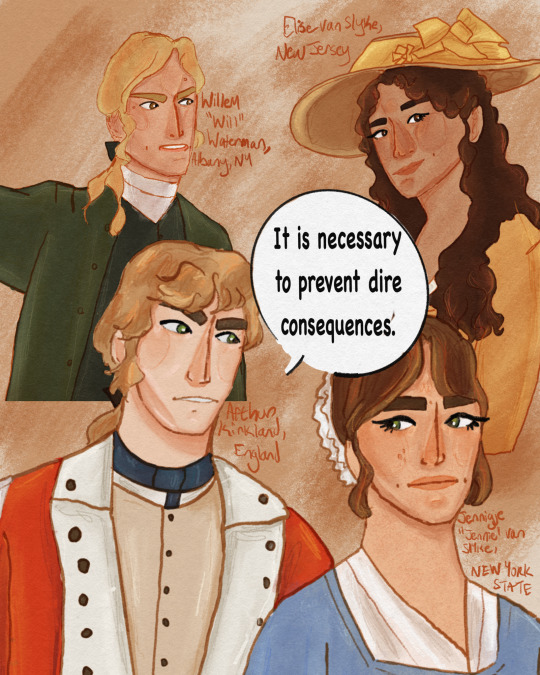
This is from a scene in a fiction piece I’m writing called “To Prevent Consequence.” Anyways this scene occurs in 1775, basically Jennie/ New York State is being more or less threatened by Arthur due to the rebellious activities her relatives like Elise/ New Jersey and Will/ Albany, NY, and neighbors like Henry/ Massachusetts and his cousin, Alfred.
Now at this point in time Jennie DID NOT want to partake in what was becoming the revolution (they were not quite here yet). She was still perceived as too Dutch (and Sephardi) by her peers as she used to be a Dutch colony so she didn’t really receive all that much respect from them other than her business expertise. Jennie didn’t want to rock the boat too much and risk her businesses, and she saw these rebellious activities especially from Henry & Alfred as just another inter-English conflict.
The 13 colonies were becoming difficult to govern following the French & Indian War (North American theatre of the Seven Years War) because this was the first time Arthur would’ve actually had a chance to properly govern them hence why the operated under salutary neglect. It’s not that he didn’t care to govern them, but other than his first colony Rich/Virginia, he never got a chance to spend much time with any of them because he was either in his own civil war or he was in non-stop European wars (which also dragged his 13 colonies in as well). He also began to show up because Rich had forced his hand into the French & Indian war and he realized it was time to like get these colonies under control. Initially, he tried to be like maybe a stern uncle, or teacher when he first got a chance to properly meet all of them. However he had let them all essentially do their own thing for so long that they all had separate cultures and ideas*, and he knew he had to start ruling them with heavier hand hence why he started taxing them more, and made some attempts at state religion. Simply put, the colonies were not fond of this, especially the New Englanders like Henry/Massachusetts & Alfred who saw this as another attempt to suppress their “rights to be new Englanders.”
ANYWAYS her younger sister, Elise & cousin, Will on the other hand saw the brewing conflict as a chance to assert their Dutch-ness. A lot of American ideas about plurality of religion and ethnicity can be traced back to the plurality seen in the New Netherland colony (which was mostly New York & New Jersey- Pennsylvania also had these ideas but that’s cause of the Quakers lol). Meanwhile, her long-time neighbor, and frenemy Henry/Massachusetts & Alfred were starting shit with Arthur mostly cause they just didn’t want to be ruled so heavily by him. Henry & Jennie have a complicated relationship, but one thing you can count on is that Jennie annoys / enrages the ever the fuck out of Henry for just being there; and she gleefully antagonizes him enough that sometimes he just stops. Arthur generally likes Jennie, but he still wasn’t the biggest fan that she was still rather Dutch despite being a colony of his for a little over 100 years at this point.
Arthur was hoping by threatening Jennie with like y’know harming her relatives that Jennie could placate both her relatives and Henry and Alfred somehow. And this worked for a time at making Jennie even more hesitant to partake in the Revolution. Jennie does also have a good poker face normally, but like lol her boss is threatening her in this scene so.
I’ll save this for another post, but Jennie does of course eventually participate and she goes hard for these assholes. She starts off as an “outsider” amongst these English colonies and quickly becomes a vital player and honestly a trusted confidant of Alfred’s.
Little tidbits
- Alfred IS NOT Arthur’s son in this AU. Actually they don’t develop a meaningful relationship until much later on. I do see their relationship that of like an uncle/teacher nephew/student. But this post isn’t about him lol. I will say that, I see his early character growth being really developed by his interactions with states and cities and indigenous nations rather than with European nations
- I heavily rely folkways a lot to inform my Nor’Easter verse lore because I really enjoy US history, but I personally don’t like:
1) shoving everything into one character (Alfred) hence why I make use of states and cities (they’re not all related to him nor are they all necessarily friends with him).
2) I like US history, and I really love the social and regional discourses within it. So having states and cities represent perhaps “outsider” groups (ex not WASPs) allows me to do that whilst also explaining the history of that state / city in relation to US history.
- *SO these colonies DID DEVELOP DIFFERENTLY. I’m using the regions put forth by Albion’s Seed to inform the more “English” areas of the nation- so basically the “root” culture of these regions are
17th century East England = New England
17th century English/Scottish borderlands = Appalachia
17th century southwestern English gentry = tidewater south
Quakers are deadass their own thing + 17th Century English Midlands
Everything is regional in my understanding of the world. Modern English national culture was being created and also being enforced in the colonies, and these colonies had developed from different regional English cultures and wanted to continue their traditions within those so to a certain extent the American Revolution was sort of an English civil war and these colonies wanted to assert their right to be English (or whatever else) in their own way.
I look at other cultures, but this is all a case by case thing, my main focus is New York, which is uniquely Dutch.
#historical hetalia#hetalia oc#aph oc#hws oc#hetalia New York#aph New York#hws New York#hetalia New Jersey#aph New Jersey#hws new jersey#hetalia Albany#aph albany#hws Albany#hetalia uk#hws uk#aph uk#hetalia England#hws England#aph england#hetalia United Kingdom#hws United Kingdom#aph United Kingdom#arthur kirkland#statetalia#nor’easter verse#statehumans#cityhumans
18 notes
·
View notes
Text
20 Questions for Writers
Thanks for the tag @envexenveritas, you're enabling me to procrastinate on writing a rather tricky scene.
1. How many works do you have on AO3?
Just two but one of them is sort of a song parody (about writing fanfiction, to the tune of Losing My Religion), not a fic. But the question says 'works' and... for better or worse, it's a work, I guess.
2. What's your total AO3 word count?
393,520 across both works but the song is just 273 so, yeahhhh. That should tell you everything you need to know about my One Fic.
(42 chapters so far, in case you're wondering, including one that was a whopping 20k+ words)
3. What fandoms do you write for?
Doctor Who, specifically the new UNIT gang, with heavy emphasis on the Big Finish audios in terms of sourcing story material. I'm basically rewriting the new UNIT storyline, centered on the developing relationship between Osgood and Kate Stewart.
4. What are your top 5 fics by kudos?
I mean, if we're specifically talking fics, I have just the one. So it's my best fic and my worst fic at the same time, on any metric you choose to apply!
My Cosmos is Yours, aka Cosmos or sometimes Cosmosgate, has 297 kudos so far. Also, 30 bookmarks and 10,493 hits, in case that matters.
5. Do you respond to comments?
Do I reply to comments? Hah. Yes, yes I do. Religiously. Not always immediately, as sometimes I need a bit of time to digest them before replying; but I do read them all right away and I reply to everything eventually.
I welcome every kind of comment, from one-line "GAAHAHHHHHH" eructations to multi-paragraph analyses, rambles and vocal if not always coherent expressions of enthusiasm.
Funny thing, there's a bit of a culture of commenting that has grown around Cosmos. For reference, it has 1,194 comments (though half of that are replies from me).
Part of it, I suspect, is that word has got around that I'm pathetically needy for comments (I make no secret of it), so most of my regular readers have got into the habit of feeding me comments at every chapter, which is very lovely of them. And perhaps because there are so many comments on every chapter, some of the more occasional readers do also seem to find themselves motivated to leave comments, which is a wonderful effect, if true.
6. What is the fic you wrote with the angstiest ending?
I haven't finished a fic yet so, no overall endings to speak of, but if I look across the 42 chapters I've written so far, Chapter 38: Endgame has got to be the most grim in terms of where it leaves Osgood and Kate.
7. What’s the fic you wrote with the happiest ending?
Hah well if we apply the same principle of looking across Cosmos chapters, Chapter 42: Life, the Universe and Everything has got to be the winner, with no fewer than three happy endings (one of them a double), if you'll pardon the phrase.
8. Do you get hate on fics?
Not so far, no. I occasionally get razzed by my British regulars for committing Americanisms (most famously, writing 'faucet' instead of 'tap') but it's all in good fun.
9. Do you write smut? If so, what kind?
Yep. Though I've been told it's not actually smut, it's erotica, which is the best compliment I can imagine. It's all character-driven, and it's very necessary to the story (I say to justify myself). I won't put any labels on it; I'll just say that by intent, it's loving, it's very mature, but it's never unnecessarily explicit. Though it does get people quite hot under the collar, reportedly, which is very gratifying!
10. Do you write crossovers? What’s the craziest one you’ve written?
Well, I did pull in Malcolm Tucker from "The Thick of It" for one chapter, and he'll be showing up again because he's so fun to write. But it's not a zany kind of crossover.
I don't think I have any crazy crossovers in me, at least not at this moment in time; when I'm in the mood for that sort of thing I go to Lambrookmist.
11. Have you ever had a fic stolen?
Nope.
12. Have you ever had a fic translated?
Nope.
13. Have you ever co-written a fic before?
No, I'd be terrible as a fic co-author. I've co-authored a technical book in my professional life and it went well enough (the book got published and we're proud of it) but I suspect it was a frustrating experience for my co-author. I'm very critical and I change my mind about important stuff all the time.
14. What’s your all time favourite ship?
Osgood/Kate Stewart obviously. With a side of Gabrielle/Xena and Janeway/Seven. There may be a pattern there.
15. What’s a WIP you want to finish but doubt you ever will?
I'm like a dog with a bone, I will finish everything, eventually. Although with Cosmos, I can't imagine running out of story to tell anytime soon. It could take years. Unless I find a good stopping point and just finish + start a sequel. That's an option.
16. What are your writing strengths?
Accurate characterization, I think? I'd like to think I do a pretty decent job with pacing and balancing action vs. talk. Also my real-life scientific/technical background helps me write credible plot details for our two favorite science geniuses.
From a stylistic standpoint, I've been told my writing has a cadence and musicality that's very enjoyable. That's something I care a lot about, so, yay.
17. What are your writing weaknesses?
I'm painfully aware that I overuse certain phrases. And I overthink things a lot, so it takes me ages to ship out new chapters. Especially now that I have a full time day job again, which I didn't when I started writing Cosmos— long story for another time.
18. Thoughts on writing dialogue in another language in fic?
A few lines here and there can be very helpful when the setting calls for it (the characters are abroad, or working with people from different cultural backgrounds) but you don't want to overdo it.
19. First fandom you wrote for?
Well, I wrote a one-off Picard/Crusher ficlet in the late 90s, so I'm legally obligated to say Star Trek: TNG. But I never wrote anything else (fic-wise) until Cosmos.
20. Favourite fic you’ve written?
Surprise, it's Cosmos!
In case anyone is curious, I'm about 1/3 of the way through writing Ch. 43, so hopefully it won't be nearly as long til the next update. (For reference, it took me three months to get Ch. 42 out.)
I think I'm supposed to tag some other writers now? Let's say @starfleetwitch, @kowarth, and gosh I need to look up some usernames. Will add those later. Got to go feed my family now.
EDIT: adding @colourmestoked04 to the taggees
9 notes
·
View notes
Note
Hiii,
Sending some asks your way too! eheh
Here are some questions that I'd love to know about them:
💔, 🍓 and 🍄, for both of them, if that's okay!
Have an amazing day and thank you for sending some as well. ♥
Hiii @missnobodymadness thank you sm for sending in these question prompts! <3 These were fun to think about! As always I kinda rambled so it's under the cut but I do think about Nüwa and Odelia a lot lol so here you go :))
TW for mentions of torture and parental abuse
💔 (broken heart) - Who has your character hurt most? Physically or emotionally? How did it feel? Do they regret it?
Zheng Nüwa: Not to spoil too much but when one of her best friends gets brutally murdered in the Underground, she goes on a bloody path of revenge and spends a long time tracking down the man responsible, tormenting him psychologically by ruining every aspect of his life, and then at his very lowest, she tortures him and kills him. It's dark ik 😭 she was not in a good place after losing her friend, and she's allergic to healthy coping mechanisms 😭 (which is honestly very on brand for AOT so 🤷🏻♀️) but!! revenge stories are fun to write so I'm having a good time even if she isn't 😂😭
Odelia Kreutz: I can't think of anyone she would really hurt emotionally? She and Jean would get into arguments in their cadet days, but that does eventually get resolved as they both mature as people. Physically, though... she's a lot stronger than she looks (ballerinas are very athletic and disciplined and she has a ballet background). I think she'd really fuck up a bunch of Jaegerists in Season 4 - she would never join them, knowing just how insidious and predatory their beliefs can be. She doesn't regret fighting against the Jaegerists, but when some of those people were people she trained alongside... yeah I can see her wishing she'd found another way to deal with them.
🍓 (strawberry) - Does your oc believe in anything? Are they superstitious? Religious? Atheistic? Has anything in their past made them this way?
Zheng Nüwa: She grew up atheist, since her parents were as well. Nüwa's mother did enjoy telling folk stories from their homeland and culture, since that is what her parents did too. These folk stories were one of the very few things that could help Nüwa's mother connect to her culture, which was being rapidly erased with the persecution of their kind. (It's why Nüwa was given this name). But Nüwa never took those folk stories as truth and in general doesn't buy into religion. She doesn't like the idea of fate either, as she believes in free will.
Odelia Kreutz: Oh boy this is a good question as it's a key theme with Odelia as a character. Her father is a high-ranking clergy member of the Wall Religion; high enough to know what the real truths of the Walls are. However, he obviously isn't going to pass this information on to his daughter until she's old enough to really comprehend the secrets being hidden by the Wall Religion, so he raises her with the same beliefs as most others practicing this religion. He also abused her and her mother (mostly emotional but he also hit them on occasion to discipline them) and justified his behaviour through his beliefs, and she internalised those beliefs, so she has a fair bit of religious trauma that she has to work through later on in life. What helps her begin to deconstruct these beliefs are the outside perspectives she encounters when she goes to a ballet academy; where some of her fellow dancers don't quite subscribe to this religion. Nüwa is her auntie through marriage, and has a bit of influence in getting Odelia to start to question her beliefs and to not blindly follow them. She becomes more sceptical, and her main motivation to run away and enlist in the 104th is to find out the real truths, see the world for herself and form her own opinions without the shackles of her father and his religion facing her to think in a certain way. This is also the reason why she really really freaks out at someone when she finds out someone has lied to her, it deeply upsets her and she reacts more than the average person would, because it's genuinely triggering. Honestly and truth is the most important thing to her. (You can imagine she doesn't take the RBA titan reveals very well.) TLDR Odelia's relationship with religion is a complicated and difficult one, poor baby :((
(Disclaimer: I don't think all religions are toxic in the way that it is being portrayed through Odelia's father and the trauma she has from being raised under the beliefs of the Wall Religion. I'm extrapolating from canon, from what we already know about the Wall Religion. But I have no problems with IRL religions and the people who practice them without harming others. Just thought I'd make that clear!)
🍄 (mushroom) - Does your character like being in nature or do they prefer the indoors? Do they have any outdoor hobbies like camping or fishing? If they prefer the indoors, why?
Zheng Nüwa: Despite her surface job being very indoor-oriented, I think she's fairly outdoorsy, but especially after she gets to the surface and realises just how much she's missed out on in the Underground. Different weather types, flora, fauna, etc. Now that she's aboveground, she wants to take the opportunity to experience what she never could as a child, it's honestly very healing for her inner child. It also makes her realise that the surface citizens take a lot of things for granted, so experiencing nature and the outdoors is yet another motivator for her to keep working hard to improve things for other Underground people, knowing what they could've experienced growing up. Also, being outdoors in the rural areas away from the industrial areas is much better for her health, as her asthma is triggered by air pollution. As for outdoor hobbies, I think she'd enjoy hiking, and learning to swim in natural bodies of water! She sometimes gets invited on outdoor hunting trips with other nobles, so I can see things like falconry being something she'd come to like.
Odelia Kreutz: Similarly to Nüwa, experiencing the outdoors is a way to heal her inner child. After a lifetime of being a noble, cooped up indoors and being raised for nothing but marriage, she cherishes every expedition, as it is an opportunity to see more of nature and what lies outside the Walls. Since she's a soldier and joins the Survey Corps, learning to ride a horse is absolutely essential, but she genuinely enjoys horse riding as well! I haven't come up with a name for her horse yet but rest assured they have a close bond not unlike Levi and his horse.
Red Emoji OC Asks Game
7 notes
·
View notes